


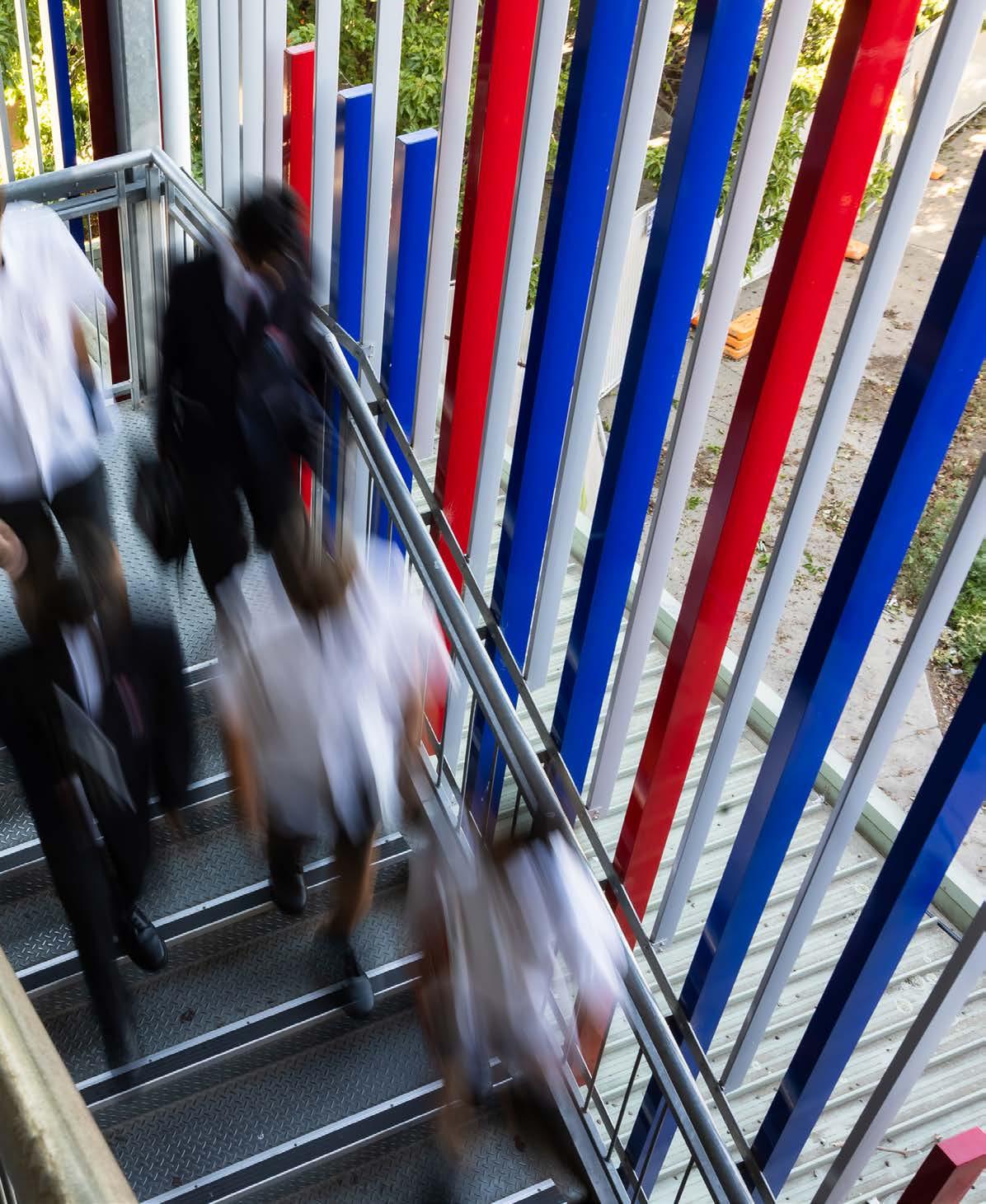





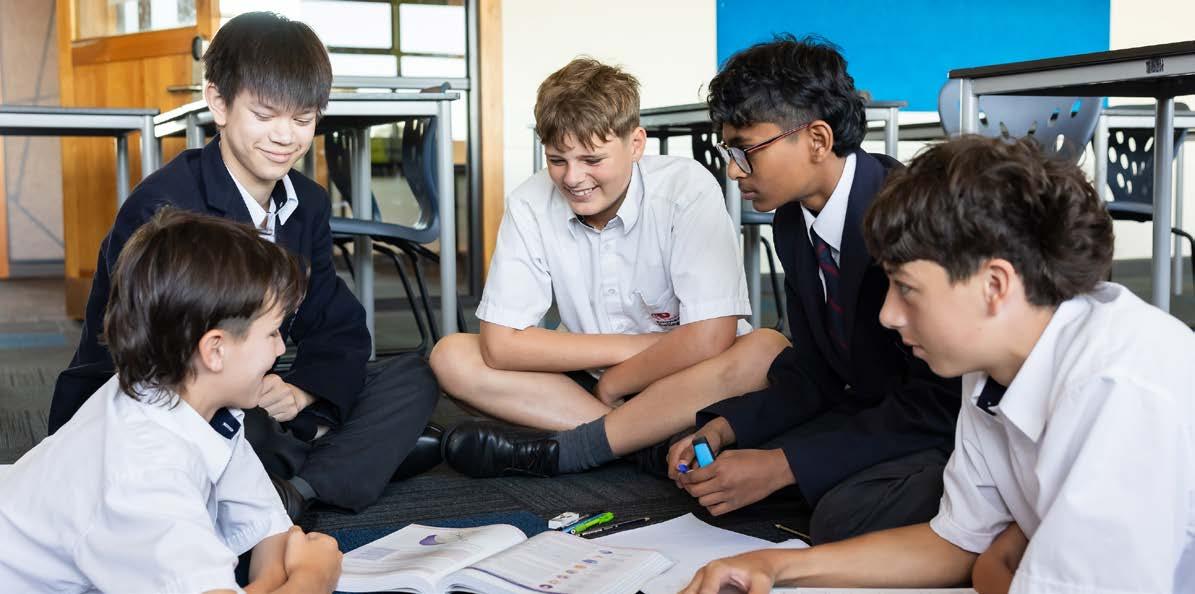
Choosing your VCE pathway is an exciting and important step in your senior school journey. This guide has been designed to help students and families understand the wide range of subject offerings at Emmanuel College and to support informed decision-making for Years 10, 11 and 12.
Whether you are considering a traditional Year 10 or VCE, the VCE Vocational Major [VM], a VET program or the Victorian Pathways Certificate [VPC], this guide outlines the learning opportunities, subject content, and future pathways available to you.
Use this guide to:
• Explore the Year 10 subject offerings including, acceleration and Ignite
• Explore all VCE and VCE VM subjects offered at Emmanuel College
• Und erstand what each subject offers
• Id entify the subjects that align with your interests, strengths, and career goals
• Check prerequisites and plan your course to meet VCE or VCE VM graduation requirements
• This clock symbol indicates that participation in this subject has a time commitment both after hours and/or during the school day.
• $ The money symbol indicates that there is a levy associated with participation in th is subject.
• This fast-forward symbol indicates that there is an o ption for acceleration in this subject.
We encourage all students to read this guide carefully, speak with teachers and career practitioners, and involve your family in decision-making.
The Acceleration Program allows high-achieving and highly motivated students in Year 10 (Units 1 and 2) and Year 11 (Units 3 and 4) to engage in a VCE subject ahead of the usual sequence. This process is open to all students via application, with applicants assessed against set criteria to determine their readiness. This includes academic performance, cognitive ability, motivation, social-emotional maturity, and genuine interest in the subject. Students may only accelerate in one subject, and where relevant—such as in Music—an audition may be required. Applications are reviewed in consultation with subject teachers, Learning Area Leaders, House Leaders, and the Learning Team. Offers are then made. Students approved for acceleration in Year 10 will need to reapply for consideration in Year 11. The list of available subjects will continue to expand in 2026, aligning with learning area recommendations. Throughout this guide, subjects that are being offered for acceleration are indicated by the double fast forward symbol .
Learning Pathways
VCE Subject Planner – Units 1 to 4
VCE VM Subject Planner – Units 1 to 4
YEAR 10 Pathways
YEAR 10 General Program
General Year 10 Subject Descriptions
Year 10 Ignite Program
Ignite Subject Descriptions
About the VCE VM (Vocational Major)
VCE VM
VM Literacy
VM Numeracy
VM Personal Development Skills (PDS)
VM Work Related Skills
VCE VET and SBAT
About VCE (Victorian Certificate of Education)
VCE Religion and Society
VCE English
VCE English Language
VCE Literature
VCE Foundation Mathematics
VCE General Mathematics
VCE Mathematical Methods
VCE Specialist Mathematics
VCE Biology
VCE Chemistry
VCE Environmental Science
VCE Physics
VCE Psychology
VCE History
VCE Legal Studies
VCE Geography
VCE Accounting
VCE Economics
VCE Art Making & Exhibiting
VCE Theatre Studies
VCE Drama
VCE Media
VCE Visual Communication Design
VCE Applied Computing
VCE Food Studies
VCE Product Design & Technology
VCE Systems Engineering
VCE Outdoor & Environmental Studies
VCE Health & Human Development
VCE Physical Education
VCE Music
VCE VET Music (Performance)
VCE Italian (Second Language)
VCE Japanese (Second Language)
VCE Spanish (Second Language)
VICTORIAN PATHWAYS CERTIFICATE [VPC]
The VPC is a flexible certificate for students in Years 11 and/or 12 who need a more individualised program.
The VPC is:
• Based on applied learning principles.
• A s tandalone foundation Course.
• A pathway to Entry Level VET courses.
• Standards based with school-based assessment.
The VPC is not a VCE equivalent, it has no external assessments or exams, and students do not receive an ATAR.
PATHWAY TO:
VCE, VCE VM, or Vocational Education and Training (VET) certificates.
JUNIOR COURSES YEARS 7-9
SENIOR COURSE YEAR 10
SENIOR PATHWAYS YEARS 11 & 12
The VCE is a senior secondary certificate designed to be completed by students over a minimum of two years.
Units 1 & 2 can be completed as single units. Units 3 & 4 are designed to be taken as a sequence.
Students study units based on interest and pathways prerequisites. Approved VET courses or VM subjects are an option. Standards based assessments and/or external examinations and ATAR (if scored).
VCE VOCATIONAL MAJOR
Students study units with a vocational and applied learning focus. A VET course must be included. Students may choose a general VCE study within their VM program.
Standards based assessment, no external exams, no ATAR.
VOCATIONAL EDUCATION AND TRAINING [VET]
VET courses can be scored or unscored. A VET course is compulsory if undertaking a VCE VM pathway.
• Training
• Struct ured Workplace Learning
• Traineeships/SBATS
• TAFE Certificate II,III,IV
• Diploma
• Advanced Diploma
• Employment
• Apprenticeships
• Traineeships
• Hig her Education
• University
Use this table to map out your intended VCE subjects across Years 11 and 12. List your chosen subjects in each unit sequence to help plan a balanced and complete VCE program. The minimum requirement is 16 Units, which must include:
• 3 VCE units from the English group (including a Unit 3-4 sequence)
• At least 3 other sequences of Unit 3-4 studies other than English.
Sample planner: Eligible for a VCE Certificate
Use this table to map out your intended VCE VM subjects across Years 11 and 12. List your chosen subjects in each unit sequence to help plan a balanced and complete VCE program. The minimum requirement is 16 Units, which must include:
• 3 VCE VM Literacy or VCE English units (including a unit 3-4 sequence)
• 2 VM Numeracy or VCE Mathematics units
• 2 VCE VM Work Related Skills [WRS] units
• 2 VCE VM Personal Development Skills [PDS] units
• 2 VET credits at Certificate II or above (180 nominal hours) Sample planner: Eligible for a VCE VM Certificate
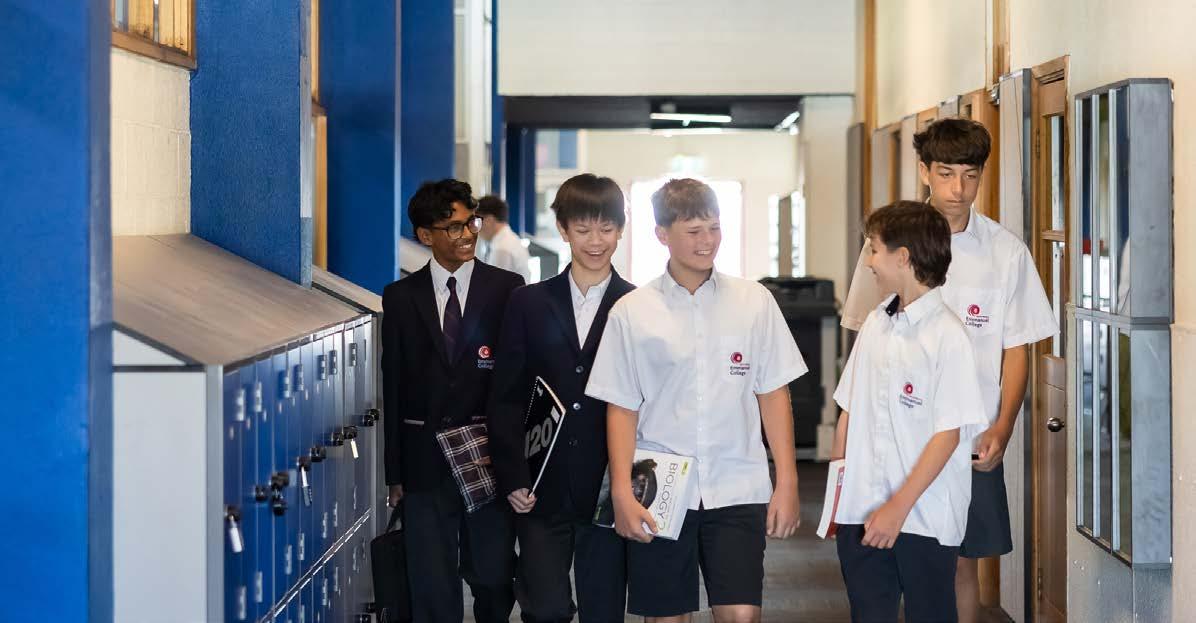
At Year 10, students enter the final stage of the Victorian Curriculum before transitioning into their senior secondary studies. They have the option to continue with the general Year 10 program or to apply for a place in the Year 10 Ignite program, which offers a more applied learning approach. While both pathways lead to VCE, the Ignite program is designed to support students who may be considering the VCE Vocational Major [VM] in future years.
In addition, some students may wish to be considered for acceleration into a VCE study. This option is suited to students who demonstrate strong academic performance, emotional maturity, cognitive readiness, and a genuine interest in extending their learning in one subject area.
Both the Ignite and VCE Acceleration programs require an application process, as places are limited, and suitability is carefully considered.
YEAR 9
YEAR

Year 10 provides an opportunity to build the independence, responsibility, and study habits needed for success in senior pathways such as VCE, VCE Vocational Major, or VET. Through a broad and engaging curriculum, General Year 10 supports students and families in making informed decisions about subject selection and post-school options, setting the foundation for success in Years 11 and 12 and beyond. Subjects that have a VCE acceleration options are indicated by the acceleration icon.
Students in Year 10 will study 7 units in each semester. In line with the Victorian Curriculum, each semester will consist of core studies from the domains.
Religious Education (compulsory)

VCE Religion and Society
English
•English Core (Semester One)
• English Elective (Semester Two)
o English / English Language / Literature
•English as an Additional Language (by invitation)
Health and Physical Education
•Health and Physical Education Core (Semester One)
• Health and Physical Education Elective (Semester Two)
•VET Sport and Recreation
•Outdoor and Environmental Studies

• VCE English Literature
Mathematics
•General Mathematics
•Advanced Mathematics (by application)
•VCE General Mathematics
•VCE Foundation Mathematics
Science
•Science Core (Semester One)
• Science Elective (Semester Two)
•VCE Biology
•VCE Environmental Science
•VCE Psychology
Humanities
•Humanities Core (Semester One)
• Humanities Elective (Semester Two)
•VCE Legal Studies
• VCE Geography
•VCE Business Management
The Arts
• Visual Arts
• Drama
• Visual Communication and Design
• Media
• Music
• VET Music Performance
Technology
•Digital Technology
•Food Studies (NDC only)
•Product Design and Technology – Wood
•Systems Engineering
Languages
•Italian
•Japanese
•Spanish (NDC Only)
Religious Education
Explore how the Gospels, Catholic beliefs, and world religions shape personal faith, ethics, and social justice. Includes reflection, group work, and presentations.
English
Focus on reading, writing and analysing a variety of texts, including a novel, a film and issues in the media. Build strong literacy skills for VCE through speeches, essays, and creative writing.
English as an Additional Language (by invitation)
Supports students who speak a language other than English at home. Focuses on building confidence in speaking, reading, writing, and understanding English.
Foundation Mathematics
Focus on everyday maths skills like measurement, budgeting and data interpretation. Ideal for students heading to VCE Foundation Maths.
Year 10 General Mathematics
Prepares you for Foundation, General and Maths Methods. Covering algebra, linear, networks, data analysis, CAS calculator use and real-world problem solving.
Year 10 Advanced Maths (by application)
Ideal for students who excel in mathematics and aim to study Methods and/or Specialist maths. Includes algebra, graphing, probability and CAS calculator use. Entry test required.
Science
Explore genetics, evolution, chemical reactions, newton’s laws of motion, and the formation and stars and galaxies in space. Hands-on experiments and investigations build core science and thinking skills.
Visual Art
Experiment with different art styles and media like printmaking, sculpture, and pop art. Build creative and analytical skills through practical tasks and final artworks.
Drama
Learn about different theatre styles and develop your acting, performance, and group collaboration skills. A creative subject focused on practical experience.
Visual Communication and Design
Learn how to use design elements and digital tools to communicate visually. Create drawings and design solutions using the design process.
Media
Explore photography, film, podcasting, and media production. Learn how media influences audiences while creating your own projects.
Music
Build skills in performance, listening, and music creation. No instrument required, but playing or singing experience is helpful. Covers a range of styles and music theory.
Digital Technologies
Use coding, design thinking and data tools like Python and SQL to solve real-world problems. Learn about networks, cybersecurity and ethical tech use.
Food Studies (NDC only)
Cook and design healthy, delicious meals while learning about nutrition, safety and kitchen skills. Projects include themed meal planning and food design tasks.
Product Design and Technology - Wood
Use tools, timber and design thinking to create useful products. Includes digital 3D modelling and hands-on workshop time.
Systems Engineering (SPC only)
Combine electronics and design in this hands-on subject. Build projects using wood, circuits, 3D modelling, and tools in the workshop.
Health and Physical Education
Learn how the body works in sport, including fitness, energy systems and coaching. Mix theory with physical activity and performance analysis.
Humanities
Explore history, geography, and civics through WWII, civil rights, and environmental issues. Learn how people and places shape the world today.
Italian
Build your Italian language skills through speaking, reading, writing and cultural exploration. Topics include work, environment and Italian cinema.
Japanese
Grow your Japanese vocabulary and grammar through conversation, media, and cultural topics like travel, manga, and homestays.
Spanish
Develop your Spanish through reading, speaking, and cultural projects on festivals, travel, and everyday life in Spanish-speaking countries.

The Year 10 Ignite program is a specialised learning pathway designed for students who enjoy hands-on, practical learning. While still following the Victorian Curriculum, Ignite offers a more applied approach that helps students connect what they learn in the classroom to real-world skills and experiences. As part of the program, students have the opportunity to try a VET taster—a great way to explore vocational subjects and consider potential future career pathways. Ignite also has a strong Science and Mathematics focus, encouraging students to solve problems, be creative, and work on exciting projects. It’s an excellent option for students who learn best by doing and want to start shaping their pathway towards a program that aligns with VCE VM, or VET in the senior years.
Due to the responsibilities of participating in a hands-on and community-facing program, students can expect to undertake an application process to ensure their suitability for the program.
Students in the Year 10 Ignite program will study 7 units in each semester. Core subjects which are studied all year and 1 Elective choices from the Arts or Technology domain per semester.
• Applied Religious Education
•Applied English
•Applied Science
•Applied Mathematics
•Applied Humanities
•Health & Physical Education
•VET – Taster
•Trade focus
•Business focus
•Work Related Skills
• Digital Technology
• Food Studies (NDC only)
• Product Design and Technology – Wood
• Sys tems Engineering (SPC only)
Religious Education
While engaging with topics and themes presented in the Year 10 Religious Education program, as part of the Year 10 Ignite program, you can anticipate elements of your learning that may focus on causes of social justice issues in our local or wider community. Be prepared to engage in collaborative learning and shared responsibility as you work on projects alongside your classmates.
Applied English
Aims to find the balance between developing a student’s key skills in reading, analysing and writing texts for specific purposes, audiences and contexts with applied learning principles. The subject makes learning relevant to the student’s real-world context and develops practical communication skills applicable in both academic and workplace settings.
Applied Mathematics
This subject focuses on real-world maths you can use in everyday life and future work. You’ll apply your knowledge to solve practical problems. It’s all about making maths meaningful and useful, with projects, investigations, and tasks that show how maths connects to the world around you.
Applied Science
Explore how science works in the real world with hands-on experiments, investigations, and problem-solving tasks. In this subject, you’ll look at how science is used in areas like health, the environment, forensics, and technology.
Humanities
The Humanities component of Ignite focuses on developing student understanding of financial and business literacies. It is an opportunity to gain a better understanding of how our society works, with learning experiences that focus on real-world problems.
VET Tasters
This opportunity gives you a hands-on introduction to Vocational Education and Training (VET) in areas like trade or business. You’ll explore what it’s like to work in these industries, develop practical skills, and learn about training and job opportunities after school.
Work Related Skills
In this subject, you’ll learn the practical skills and knowledge needed to succeed in the workplace. You’ll explore what makes a safe, productive, and respectful working environment, build teamwork and problemsolving abilities, and understand your rights and responsibilities at work.
Visual Communication and Design
Learn how to use design elements and digital tools to communicate visually. Create drawings and design solutions using the design process.
Media
Explore photography, film, podcasting, and media production. Learn how media influences audiences while creating your own projects.
Music
Build skills in performance, listening, and music creation. No instrument required, but playing or singing experience is helpful. Covers a range of styles and music theory.
Digital Technologies
Use coding, design thinking and data tools like Python and SQL to solve real-world problems. Learn about networks, cybersecurity and ethical tech use.
Food Studies (NDC only)
Cook and design healthy, delicious meals while learning about nutrition, safety and kitchen skills. Projects include themed meal planning and food design tasks.
Product Design and Technology - Wood
Use tools, timber and design thinking to create useful products. Includes digital 3D modelling and hands-on workshop time.
Systems Engineering (SPC only)
Combine electronics and design in this hands-on subject. Build projects using wood, circuits, 3D modelling, and tools in the workshop.
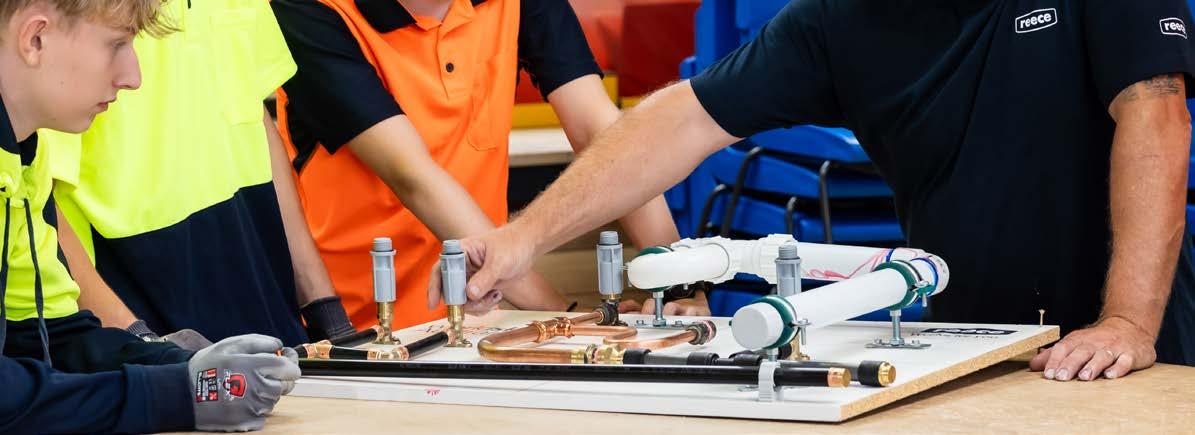
The VCE Vocational Major [VM] is a two-year program within the VCE that focuses on applied learning to help students build skills for work, further education, or training. It prepares students to move confidently into apprenticeships, traineeships, TAFE, or university (non-ATAR pathways).
VCE VM students build valuable, transferable skills through real-life experiences, including structured workplace learning and vocational education [VET]. There are no exams or study scores in VM subjects — assessment is based on hands-on tasks and applied learning. Students do not receive an ATAR but may include scored VCE subjects in their program.
To complete the VCE VM, students must complete:
•3 units of Literacy or VCE English (including a Unit 3–4 sequence)
•2 units of Numeracy or VCE Mathematics
•2 units of Work Related Skills
•2 units of Personal Development Skills
•2 VET credits (Certificate II level or above, 180 nominal hours)
•4 Unit 3–4 sequences (VM or other VCE subjects)
All VCE VM units are made up of modules with learning goals. Students must complete all modules in a unit to achieve a ‘Satisfactory’ (S) result. Students are assessed through a range of activities and reported as S (Satisfactory) or N (Not Satisfactory).
The VCE VM has four unique study areas:
VCE VM Literacy enables the development of knowledge, skills, and capabilities relevant to reading, writing and oral communication and their practical application in the contexts of everyday life, family, employment, further learning, and community.
VCE VM Numeracy enables students to develop their everyday numeracy practices to make sense of their personal, public, and future vocational lives. Students build on foundational mathematical skills with consideration of their personal, home, vocational and community environments and contexts, and an awareness and use of accessible and appropriate technologies.
VCE VM Work Related Skills (WRS) enables the development of knowledge, skills, and personal attributes relevant to further education and employment. The study also provides practical, authentic opportunities for students to develop employability skills.
VCE VM Personal Development Skills (PDS) focuses on understanding and caring for self, and engagement with community.
Over the two VCE years students can substitute VCE VM subjects with other VCE subjects or School Based Apprenticeships and Traineeships (SBAT) providing the minimum requirements for the pathway are met. Students can receive structured workplace learning recognition through structured work placement (SWLR) supported by their VET course.

Literacy in the VCE VM focuses on real-world reading, writing, speaking and listening skills. Students explore how language is used in personal, community, workplace, and advocacy settings.
They analyse a wide range of texts — including digital, visual, and print — and consider how purpose, audience, and language choices influence meaning. Students investigate the voices of First Nations peoples and learn how texts reflect values and beliefs.
YEAR 11
Unit 1: Literacy for Personal Use
• Engage with stories, digital media, blogs, and visual texts
• Build digital literacy and create content for community/ workplace use
Unit 2: Exploring Issues and Voices
• Explore real-world issues and differing viewpoints
• Learn persuasive writing and respectful debate across platforms
YEAR 12
Unit 3: Literacy for Practical Purposes
• Read and create texts for vocational settings (e.g. instructions, policies)
• Und erstand how organisations use language to inform and guide
Unit 4: Literacy for Public Debate
• Create texts that advocate for self, others, or community issues
• Deliver an oral presentation to advise or influence an audience
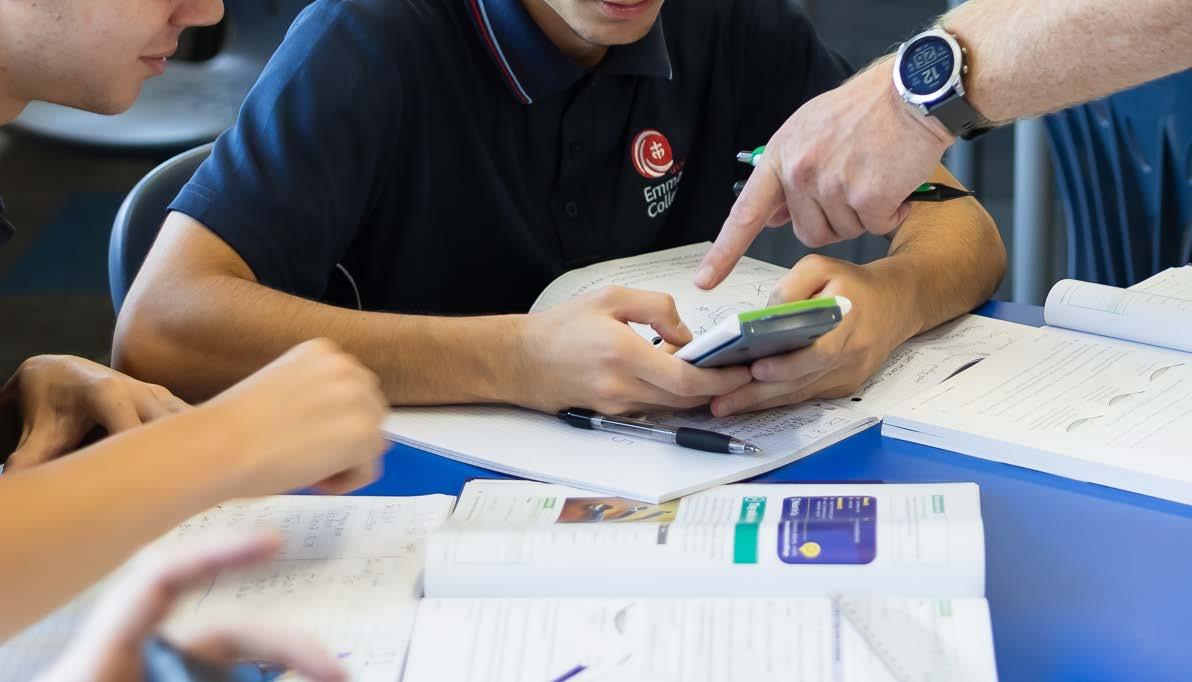
Numeracy in the VCE VM helps students develop the mathematical skills needed for everyday life, work, and the community. The course focuses on practical, real-world maths such as budgeting, time, measurement, data, and spatial awareness.
Students build problem-solving skills and use appropriate technology to support their learning.
Unit 1: There are four areas of study for Unit 1
• Area of Study 1: Number
• Area of Study 2: Shape
• Area of Study 3: Quantity and measures
• Area of Study 4: Relationships.
The areas of study cover a range of different mathematical knowledge and skills that are expected to be used and applied across the three outcomes.
Unit 2: There are four areas of study for Unit 2
• Area of Study 5: Dimension and direction
• Area of Study 6: Data
• Area of Study 7: Uncertainty
• Area of Study 8: Systematics
The areas of study cover a range of different mathematical knowledge and skills that are expected to be used and applied across the three outcomes.
Unit 3: Builds on Unit 1 content
• Area of Study 1: Number
• Area of Study 2: Shape
• Area of Study 3: Quantity and measures
• Area of Study 4: Relationships.
The areas of study cover a range of different mathematical knowledge and skills that are expected to be used and applied across the three outcomes.
Unit 4: Builds on Unit 2 content in complexity of mathematical skills and knowledge
There are four areas of study for Unit 4
• Area of Study 5: Dimension and direction
• Area of Study 6: Data
• Area of Study 7: Uncertainty
• Area of Study 8: Systematics
The areas of study cover a range of different mathematical knowledge and skills that are expected to be used and applied across the three outcome
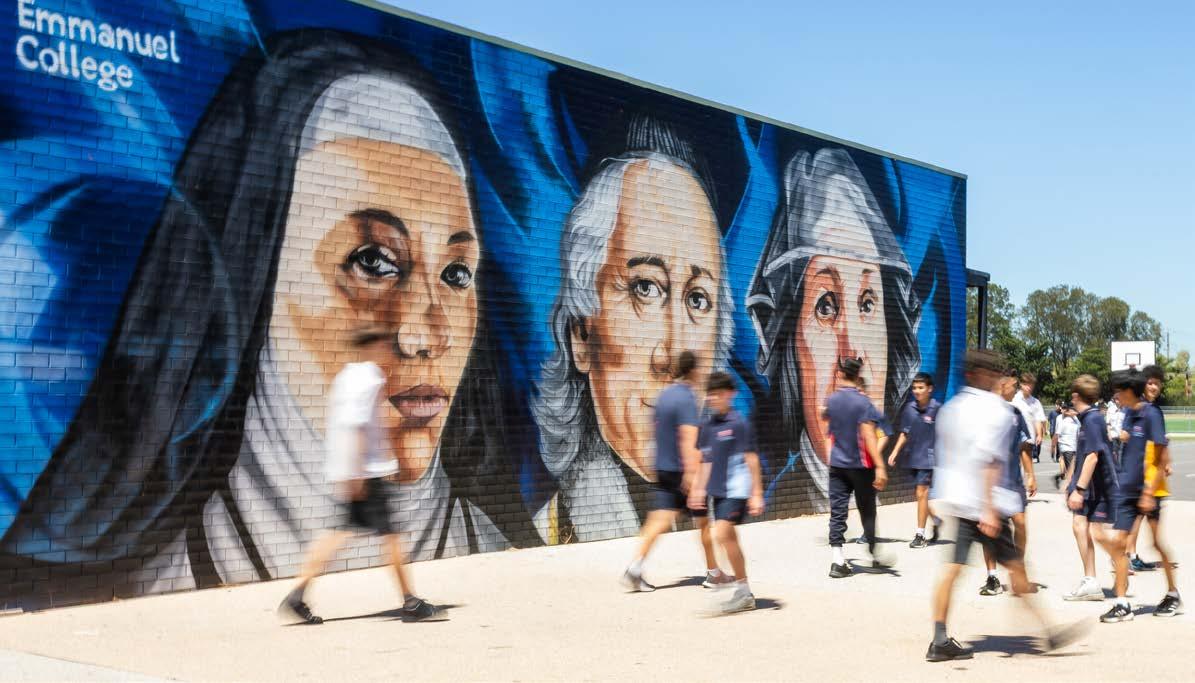
Personal Development Skills focuses on personal growth, leadership, and active citizenship. Students explore their health and wellbeing, reflect on their values and goals, and build skills to participate in and lead community initiatives.
YEAR 11
Unit 1: Healthy Individuals
• Und erstand identity, mental health and emotional intelligence
• Investigate health services and create wellbeing activities
Unit 2: Connecting with Community
• Learn a bout teamwork, empathy, and civic participation
• Plan and participate in a community activity or initiative
YEAR 12
Unit 3: Leadership and Teamwork
• Explore leadership styles and interpersonal skills
• Take part in a collaborative team project
Unit 4: Community Project
• Plan and d eliver an extended project to address a real community issue
• Present and evaluate the outcomes
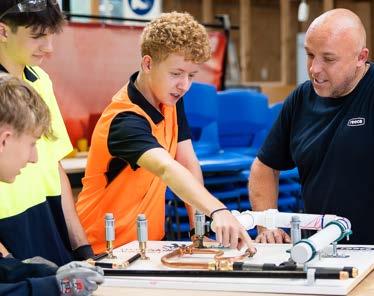
Work Related Skills prepares students for life after school by building workplace skills, career planning, and knowledge of rights and responsibilities. It blends theory and hands-on experience, including support for workplace learning.
YEAR 11
Unit 1: Careers and Learning for the Future
• Explore future careers and pathways
• Learn a bout trends in industries and workforce needs
Unit 2: Workplace Skills and Capabilities
• Build employability skills (e.g. communication, teamwork)
• Create a resume, prepare for interviews, and develop a skills portfolio
YEAR 12
Unit 3: Workplace Culture and Relations
• Learn a bout employee rights, wellbeing and safe workplace practices
• Und erstand employer expectations and workplace conflict resolution
Unit 4: Portfolio Preparation
• Build a professional digital/physical portfolio
• Present to a panel and evaluate personal growth and readiness

Vocational Education and Training [VET] subjects provide hands-on, industry-recognised qualifications in areas like trades, hospitality, health, music, and business. VET programs contribute to the VCE or VCE VM and can offer scored or unscored outcomes. VET subjects do not offer mid-year intake, so they must be chosen carefully at the start of the year.
School-Based Apprenticeships and Traineeships [SBAT] combine part-time employment, training, and school — students gain a head start in their chosen industry.
• VET programs often include Structured Workplace Learning (SWLR)
• Mos t VET programs contribute to VCE VM requirements and some to ATAR
• Attendance, behaviour, and commitment to external training providers is expected
• SBAT s tudents must meet work and study hours for successful completion and are only available through an application process.
Please consult with your VCE and Vocational Pathways Coordinator and Careers Practitioner to explore available offerings and how they align with your career goals.
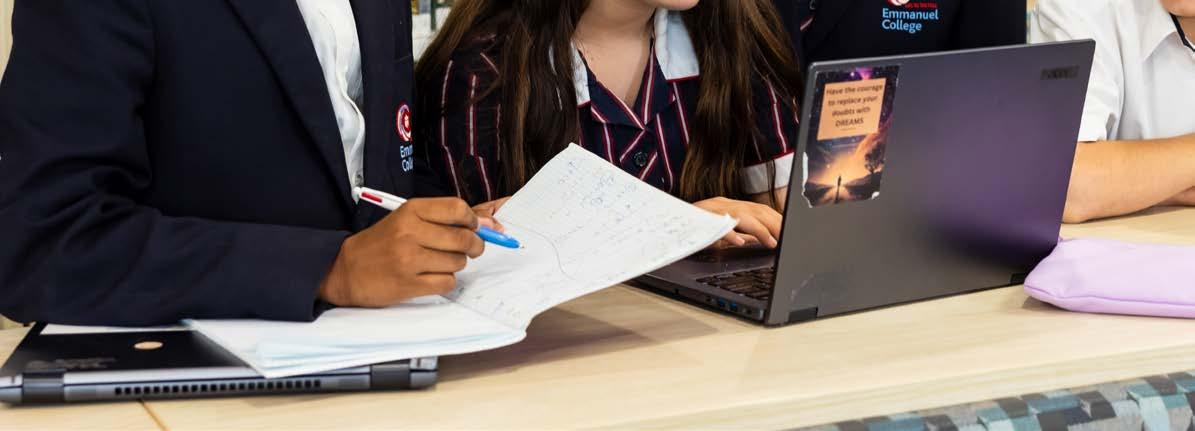
The Victorian Certificate of Education (VCE) is a senior secondary certificate designed to be completed by students over a minimum of two years. Students have the opportunity to design individual course programs to establish a range of career pathways.
Emmanuel College students will undertake six Unit 1 and 2 sequences in Year 11, and five Unit 3 and 4 sequences in Year 12, or five Unit 1 and 2 sequences in Year 11 plus a Unit 3 and 4 accelerated subject, followed by five Unit 3 and 4 sequences in Year 12. Religious Education is a compulsory component of Years 11 and 12 and can be undertaken either as a formal VCE subject (Units 3 and 4) or as a school-based subject in year 12.
The minimum requirement is satisfactory completion of 16 units which must include:
• Three units from the English group (English/Literature) including a Unit 3-4 sequence.
• At leas t three other sequences of Unit 3 and 4 studies other than English
• VCE subjects belong to “groups”. Please note the following in relation to groups and ATAR calculation. No more than two studies from the same group can count towards a student’s ATAR.
• VCE s tudents can choose to complete VCE VM Personal Development Skills or VCE VM Work Related Skills as part of their VCE. These subjects do not receive a study score and cannot contribute to an ATAR.
Any student who is contemplating applying for a tertiary course should refer to the relevant publication ‘Victorian Tertiary Entrance Requirements’ to check for course prerequisites before making their course selections.
Students will be required to undertake:
• Twelve units of study: six units in Semester One and six units in Semester Two
• A minimum of two units of English and/or Literature and/ or English Language
When considering your choice of subjects for Year 12 you will need to ensure that your choices satisfy:
• The requirements for the satisfactory completion of VCE.
• Any pre-requisites set by Tertiary Institutions. In Year 12 students are expected to undertake five Unit 3 and 4 studies. Students wishing to reduce their study load must apply and produce evidence in writing of exceptional circumstances to the VCE Coordinator.
A Year 11 student “accelerates” when they take a Unit 3-4 VCE subject in sequence in Year 11.
Students who have completed a Unit 1 and 2 acceleration in Year 10 and wish to continue with a Unit 3 and 4 acceleration in Year 11 are still required to complete an application.

VCE Religion and Society explores how religion shapes personal identity, moral decision-making, social values, and cultural heritage across time. Students investigate how religious traditions respond to ethical questions, historical events, and challenges in modern society. The course fosters critical thinking, intercultural understanding, and reflection on life’s big questions — such as “Why are we here?” and “How should we live?”
This subject is ideal for students interested in philosophy, ethics, culture, and how belief systems influence individuals and communities. All year 11 students will undertake Unit 2 across the year. However, there is the option to undertake the full sequence of Units 1 and 2.
Eligible for acceleration
YEAR 11
Unit 1: The Role of Religion in Society
• Explore the purpose of religion in human life and culture
• Study how religion has shaped identity, culture, and history
• Investigate the relationship between religion and society over time
• Analyse the presence and influence of religion in Australia, including Indigenous spiritualities
Unit 2 – Religion and Ethics - compulsory
•Learn how people and traditions decide what is “right” and “wrong”
• Compare different methods of ethical decision-making (e.g. virtue ethics, utilitarianism)
• Study how at least two religious traditions form moral perspectives
• Analyse public ethical debates on real-world issues (e.g. human rights, bioethics, environmental care)
YEAR 12
Unit 3 – The Search for Meaning
• Investigate how religions respond to life’s big questions (e.g. creation, suffering, death)
• Examine how beliefs are expressed through rituals, texts, symbols, and teachings
• Explore how significant life experiences can deepen or challenge religious faith
• Focus on one selected religion (e.g. Christianity, Islam, Judaism, Hinduism)
Unit 4 – Religion, Challenge and Change
• Study how religious traditions have responded to major challenges in theology, ethics, and survival
• Analyse different stances (e.g. reform, resistance, or adaptation) taken by religious groups
• Explore a major issue where religion and society interact — and evaluate the impact of that interaction
• Reflect on how religion evolves in response to historical, social, or internal pressure
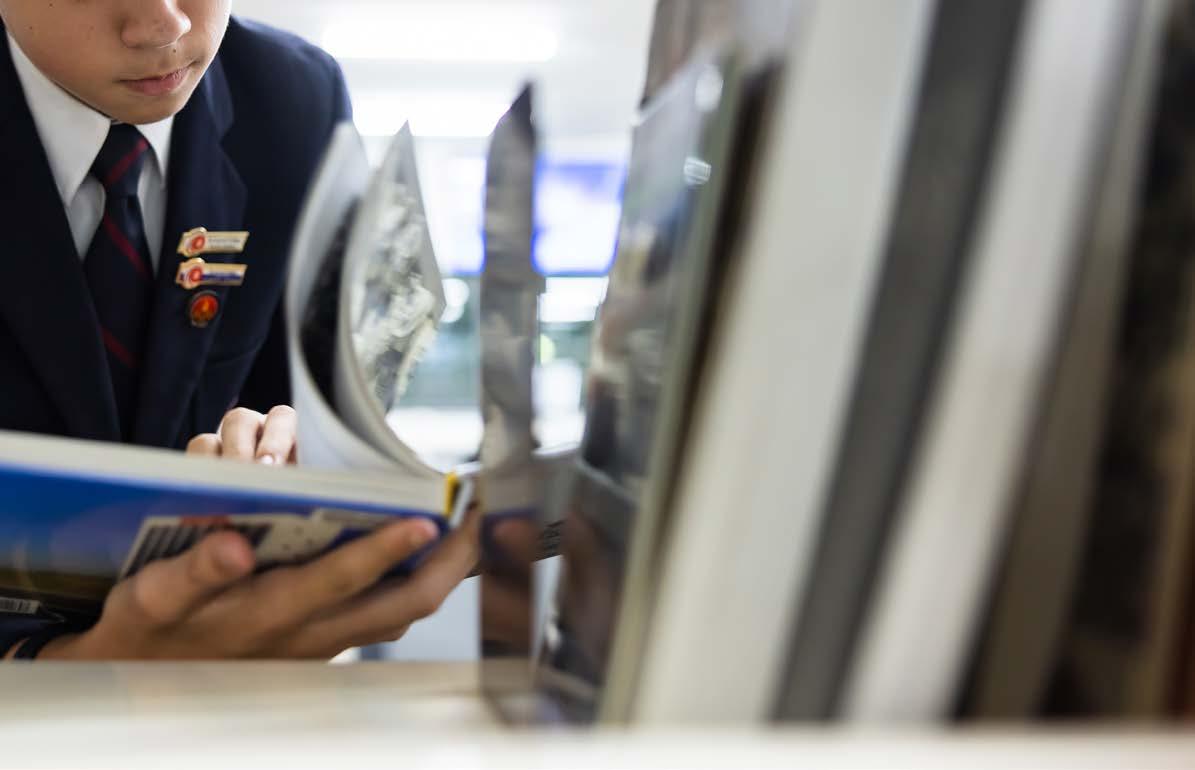
VCE English helps students develop strong skills in reading, writing, speaking and listening. Students learn how to analyse and create a range of texts, from stories and articles to speeches and essays. The study encourages both creative and critical thinking, helping students understand how language is used to communicate, persuade, and express ideas.
VCE English is suitable for most students and is one of the subjects that satisfies the English requirement for VCE completion and ATAR calculation.
Unit 1: Reading and Exploring Texts
• Explore different types of texts (novels, films, plays)
• Build skills in reading for meaning and making personal connections
• Create original writing inspired by studied texts
Unit 2: Exploring Argument
• Analyse persuasive language in current issues (print, digital, visual)
• Learn how authors use argument and language to influence an audience
• Write your own persuasive texts and deliver oral presentations
YEAR 12
Unit 3: Reading and Creating Texts
• Study two set texts and analyse how they explore themes and values
• Create written responses and your own original compositions
• Learn to explain your writing choices and s trategies
Unit 4: Reading and Responding to Texts and Analysing Argument
• Study set texts and analyse how they explore ideas, themes and values.
• Study media texts on current issues and analyse how they persuade
• Write a point-of-view piece in response to an issue

VCE English Language is the study of how English works. Informed by linguistics, it focuses on how people use language to communicate, create identity, show power, and build social connection. Students study how English changes over time and how language varies between people, places and situations.
This subject is ideal for students interested in analysis, logic, and structured writing. It also contributes to the VCE English requirement.
YEAR 11
Unit 1: Language and Communication
• Learn how language is s tructured and used in different contexts
• Explore how we acquire language as children
• Investigate how meaning is shaped by social and cultural settings
Unit 2: Language Change
• St udy the history and evolution of English
• Explore how and why language changes over time
• Investigate how English has spread around the world
YEAR 12
Unit 3: Language Variation and Social Purpose
• St udy how language varies in different settings — formal and informal
• Analyse the features of written and spoken English in Australia
• Explore how language is used to build relationships and express values
Unit 4: Language Variation and Identity
• Explore how language expresses who we are — individually and as part of a group
• Analyse how identity is shaped through accent, word choice and social context
• Investigate issues around attitudes to language and language change

VCE Literature is the study of classic and contemporary written works, including novels, plays, poetry, and more. Students read deeply, interpret texts creatively and analytically, and explore how language is used to express ideas about people, culture and society.
Literature is ideal for students who enjoy reading and writing and want to explore complex ideas and multiple interpretations.
Eligible for acceleration
YEAR 11
Unit 1: Reading and Exploring Texts
• Read a range of texts and respond creatively and analytically
• Explore how readers interpret texts based on personal experience
• Examine how a text reflects its social or h istorical context
Unit 2: Interpreting Texts
• Explore voices and perspectives from different cultures and time periods
• Compare texts and how they interact with each other
• Read literature by Aboriginal and Torres Strait Islander authors
YEAR 12
Unit 3: Form, Transformation and Interpretation
• Explore how texts are shaped by form and genre
• Transform a text creatively and explain your interpretation
• Analyse views and values presented in a set text using literary theory
Unit 4: Literary Perspectives
• Respond creatively and critically to a set text
• Explore how different critical readings shape interpretation
• Develop and defend your own reading of a text using evidence and analysis

VCE Foundation Mathematics Units 1–4 support the continued development of practical numeracy skills for every day, personal, work and study contexts. This subject is designed for students who want to improve their confidence in maths, especially in real-life problem solving.
VCE Foundation Mathematics does not lead to higher-level maths study but contributes to VCE completion and the ATAR (Units 3–4, unscored).
YEAR 11
Units 1 and 2: Practical Numeracy
• Develop confid ence with number, money, time, and measurement
• Use data to make decisions and solve problems in realworld contexts
• Learn strategies for mental estimation and calculator use
Areas of Study
• Number and proportional reasoning
• Financial mathematics
• Measurement and geometry
• Statistics and data
YEAR 12
Units 3 and 4: Everyday Applications
• Solve problems related to budgeting, shopping, planning travel, and interpreting data
• Apply maths to real-life situations involving work, health, and community contexts
• Use technology (e.g. calculators, spreadsheets) to support your work
Areas of Study
• Number and algebra
• Financial mathematics
• Measurement and geometry
• Statistics and data analysis

VCE General Mathematics Units 1–4 focus on practical, non-calculus areas of mathematics. The subject is designed for students who want to continue maths for ATAR purposes and future study, particularly in business, health, or humanities-based courses.
It provides a broad, applied understanding of data, finance, networks, and modelling.
Eligible for acceleration
YEAR 11
Units 1 and 2: Foundation for Applied Maths
• Build skills in data analysis, financial maths, networks, and graphs
• Explore patterns and relationships between variables
• Use a combination of written methods, technology, and mod elling tasks
Areas of Study
• Data and s tatistics
• Financial mathematics
• Linear mod elling
• Matrices and networks
• Measurement and geometry
• Variation and graphs
YEAR 12
Units 3 and 4: Mathematical Modelling and DecisionMaking
• Focus on interpreting and modelling realworld problems
• Use recursion, matrices and networks to represent change and relationships
• Analyse trends, make predictions, and solve applied problems
Areas of Study
• Data analysis
• Recursion and financial modelling
• Matrices
• Networks
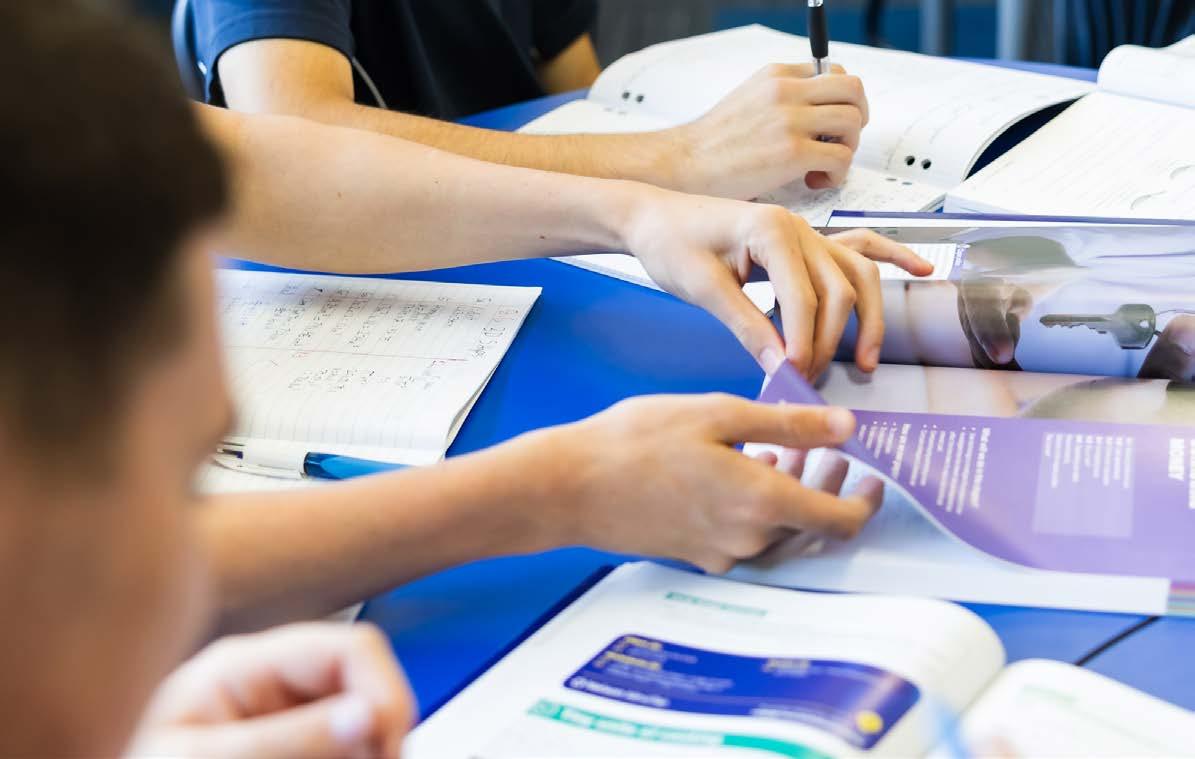
VCE Mathematical Methods Units 1–4 are designed for students with strong algebraic and logical thinking skills. It introduces calculus, functions, probability, and algebraic reasoning — providing a foundation for further study in science, engineering, economics, and medicine.
It is essential for students planning to study university courses with a mathematical focus.
YEAR 11
Units 1 and 2: Introduction to Functions and Calculus
• Investigate linear, quadratic, exponential and other functions
• Learn key algebra skills and solve equations
• Begin exploring d erivatives and basic calculus
Areas of Study
• Functions and graphs
• Algebra
• Calculus (introductory)
• Probability
YEAR 12
Units 3 and 4: Advanced Functions and Calculus
• Extend und erstanding of functions to include trigonometric and logarithmic forms
• Apply derivatives and integrals to solve real-world and abstract problems
• Explore advanced probability, including discrete and continuous distributions
Areas of Study
• Functions and graphs
• Algebra
• Calculus (differentiation and integration)
• Probability and statistics
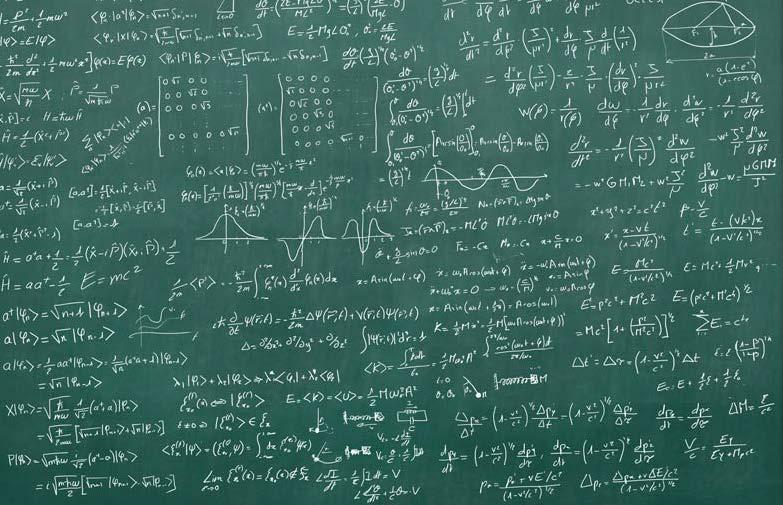
VCE Specialist Mathematics Units 1–4 are intended for students with strong mathematical ability who enjoy abstract reasoning and problem-solving. It is studied alongside (or after) Mathematical Methods and includes advanced topics like vectors, complex numbers, proofs, and statistical inference.
It supports students pursuing careers in STEM, engineering, data science, and mathematics.
YEAR 11
Units 1 and 2: Mathematical Reasoning and Structure
• Explore the logic and structure behind mathematics
• St udy advanced algebra, trigonometry, vectors, and proofs
• Use techn ology and by-hand methods to solve complex problems
Areas of Study
• Algebra and structure
• Arithmetic and number sys tems
• Discrete mathematics (matrices, networks)
• Measurement and geometry
• Vectors
• Functions and graphs
• Probability
YEAR 12
Units 3 and 4: Advanced Mathematical Applications
• Solve real-world and theoretical problems using abstract mathematical concepts
• Apply vector calculus, kinematics, and complex numbers
• Analyse data and conduct hypothesis testing
Areas of Study
• Functions and graphs
• Calculus and differential equations
• Vectors and kinematics
• Complex numbers
• Probability and statistical inference
• Logic and proof
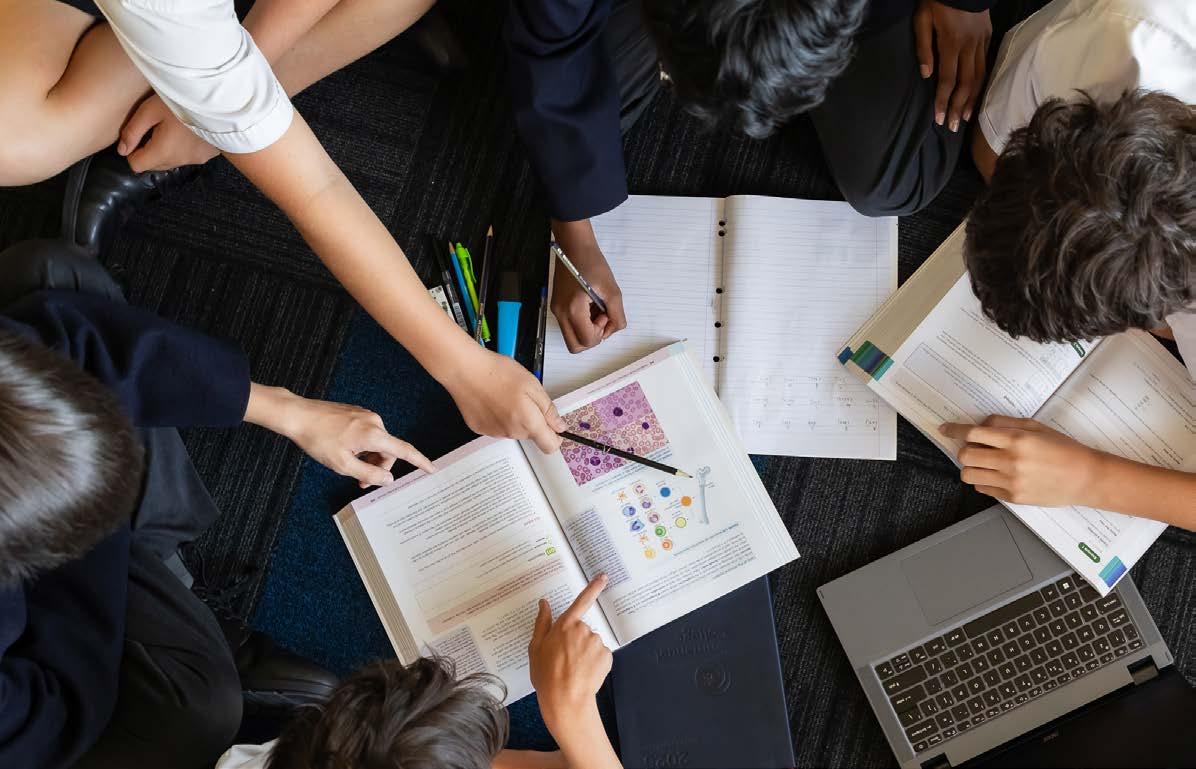
VCE Biology explores the structure and function of living things, from the cellular level to ecosystems. Students investigate how organisms survive, reproduce, adapt, and respond to change. The course combines theory with practical experiments and real-world applications in health, genetics, and the environment.
Eligible for acceleration
YEAR 11
Unit 1: How Do Organisms Regulate Their Functions?
• St udy cell structure and processes (e.g. transport, respiration, photosynthesis)
• Explore how organisms maintain stable internal conditions
• Examine body sys tems and how they interact
• Conduct experiments and report findings
Unit 2: How Does Inheritance Impact on Diversity?
• Learn how genetic information is inherited and expressed
• Investigate genetic variation and patterns of inheritance
• Explore reproductive strategies and their impact on biodiversity
• Analyse bioethical issues related to genetics
YEAR 12
Unit 3: How Do Cells Maintain Life?
• St udy how cells produce proteins and control processes
• Investigate photosynthesis, respiration, and biochemical pathways
• Learn a bout DNA technologies and genetic modification
Unit 4: How Does Life Change and Respond to Challenges?
• Explore immunity, vaccines, and disease management
• Investigate evolution, speciation, and evidence for common ancestry
• Complete a student-designed scientific investigation
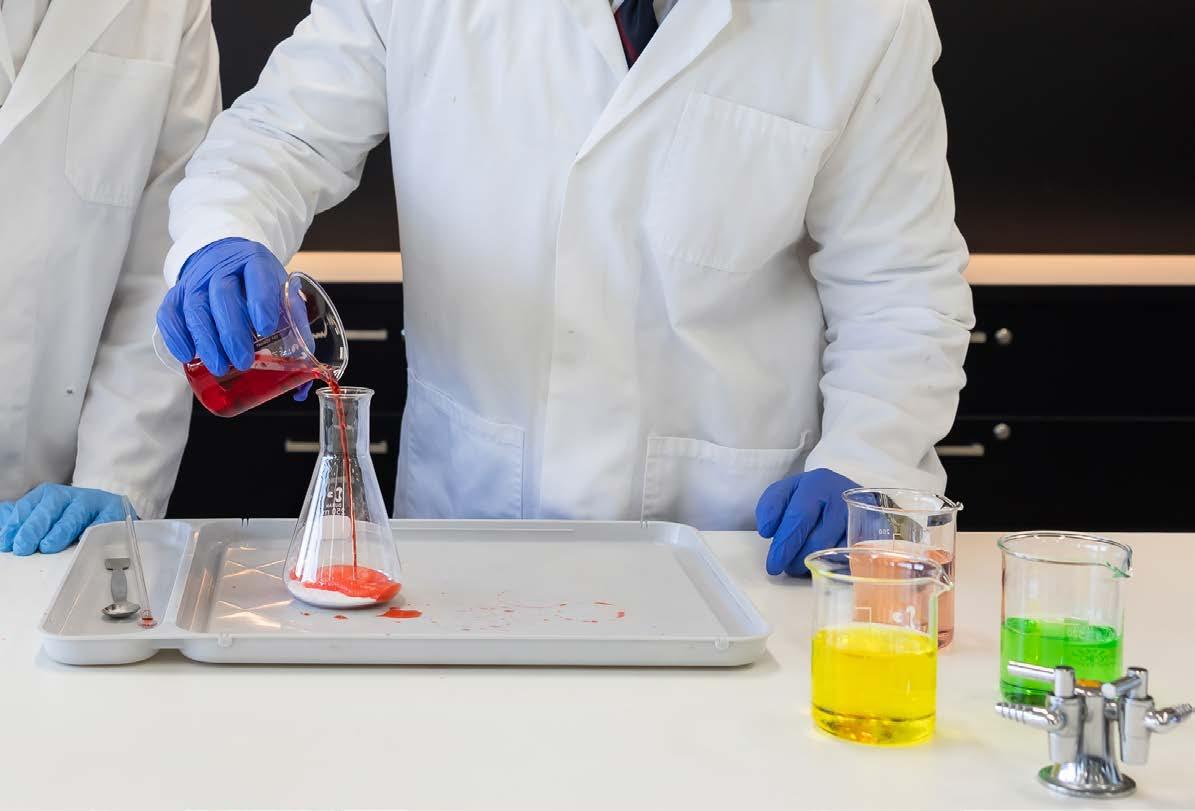
VCE Chemistry examines the composition and behaviour of matter. Students explore chemical reactions, materials, energy use, and environmental impacts. The subject blends hands-on experiments with theory to build critical thinking and analytical skills for careers in science, engineering, health, and more.
YEAR 11
Unit 1: How Can the Diversity of Materials Be Explained?
• Explore atoms, bonding, and chemical properties of metals, salts, and polymers
• St udy organic compounds and how they’re used in everyday life
• Investigate sustainable material choices and environmental impact
Unit 2: How Do Chemical Reactions Shape the Natural World?
• Analyse chemical reactions including acids and redox
• Conduct experiments involving gases, solubility, and concentration
• Explore real-world applications such as water quality and industrial processes
YEAR 12
Unit 3: How Can Design and Innovation Optimise Chemical Processes?
• Compare fuels and evaluate energy sources
• St udy chemical reaction rates, equilibrium, and electrolysis
• Apply sustainability principles to chemical production
Unit 4: How Are Carbon-Based Compounds Designed for Purpose?
• Investigate organic chemistry, including structure, reactions, and synthesis
• Use analytical techniques (e.g. chromatography, spectroscopy)
• Design and conduct an ind ependent investigation
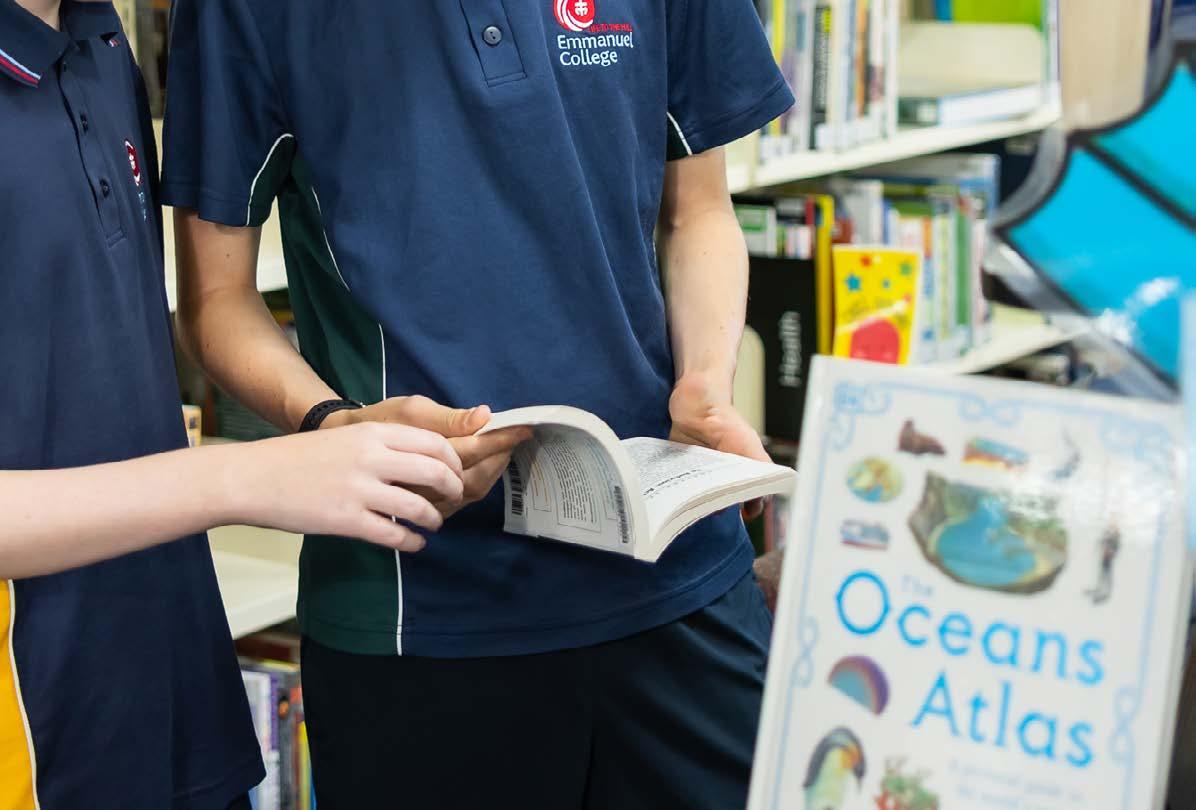
VCE Environmental Science explores the interactions between living things and their environment. Students investigate sustainability, climate change, biodiversity, and human impacts on ecosystems. The subject blends fieldwork, data
Eligible for acceleration
YEAR 11
Unit 1: How Are Earth’s Systems Connected?
• St udy Earth’s four systems: biosphere, atmosphere, hydrosphere, lithosphere
• Explore local ecosystems and environmental interdependence
• Conduct fieldwork and analyse ecological data
Unit 2: What Affects Earth’s Capacity to Sustain Life?
• Investigate pollution, food and water security
• Explore management strategies for sustainability
• Und ertake a student-designed environmental investigation
YEAR 12
Unit 3: How Can Biodiversity and Development Be Sustained?
• Learn what biodiversity is and why it matters
• Investigate threats to species and how to protect them
• Evaluate a case s tudy using environmental principles
Unit 4: How Can Climate Change and Energy Use Be Managed?
• St udy natural and human-driven climate change
• Compare renewable and non-renewable energy options
• Complete a scientific investigation related to energy or climate
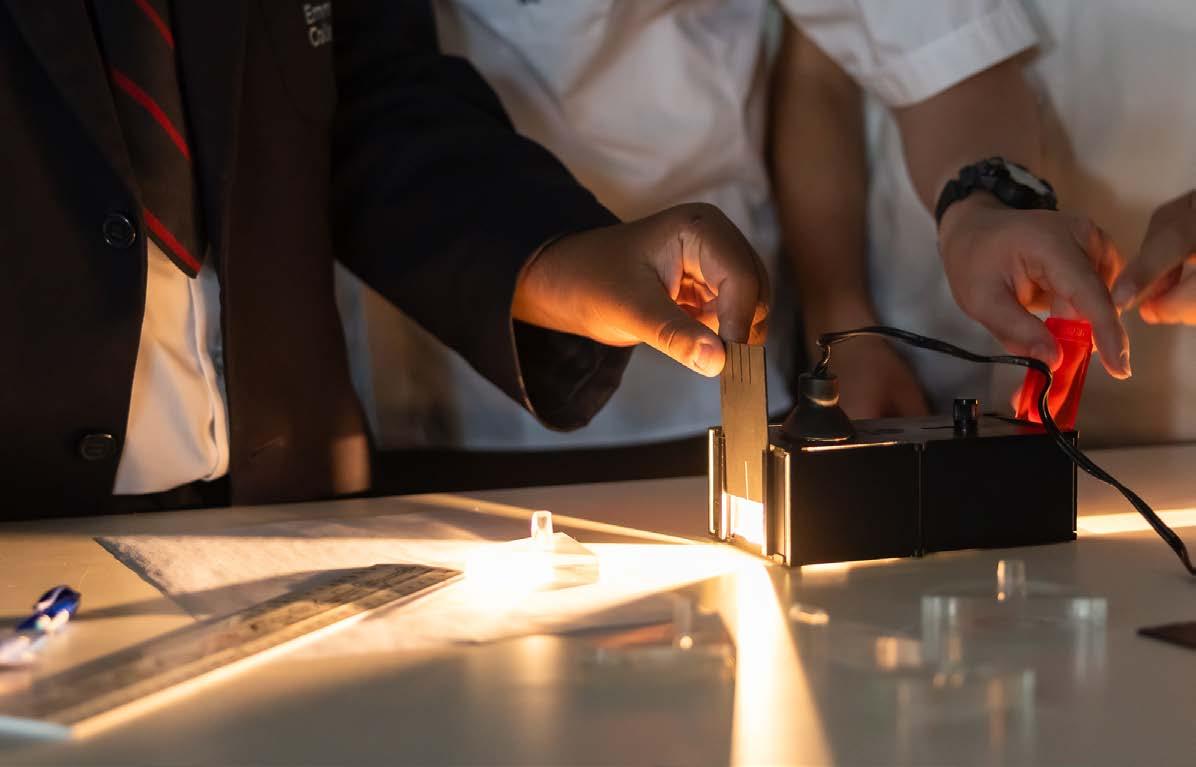
VCE Physics explores the laws and concepts that govern the physical universe — from motion and energy to light, electricity, and the structure of matter. The subject applies physics to real-world contexts such as engineering, medicine, energy, and space exploration.
YEAR 11
Unit 1: How Is Energy Useful to Society?
• Explore light, heat, nuclear processes, and electricity
• Und erstand how energy is transformed and transferred
• Investigate safe energy use in homes and industries
Unit 2: How Does Physics Help Us Understand the World?
• St udy motion, forces, and energy in mechanical systems
• Explore applications like bridges, vehicles, and sports
• Design and conduct your own physics investigation
YEAR 12
Unit 3: How Do Fields Explain Motion and Electricity?
• Investigate gravitational, electric, and magnetic fields
• Apply Newton’s laws to orbital and everyday motion
• St udy electricity generation and transmission
Unit 4: How Have Creative Ideas Changed Thinking in Physics?
• Examine wave-particle duality, relativity, and quantum theory
• Explore the structure of matter and the nature of light
• Complete a scientific investigation on a chosen topic
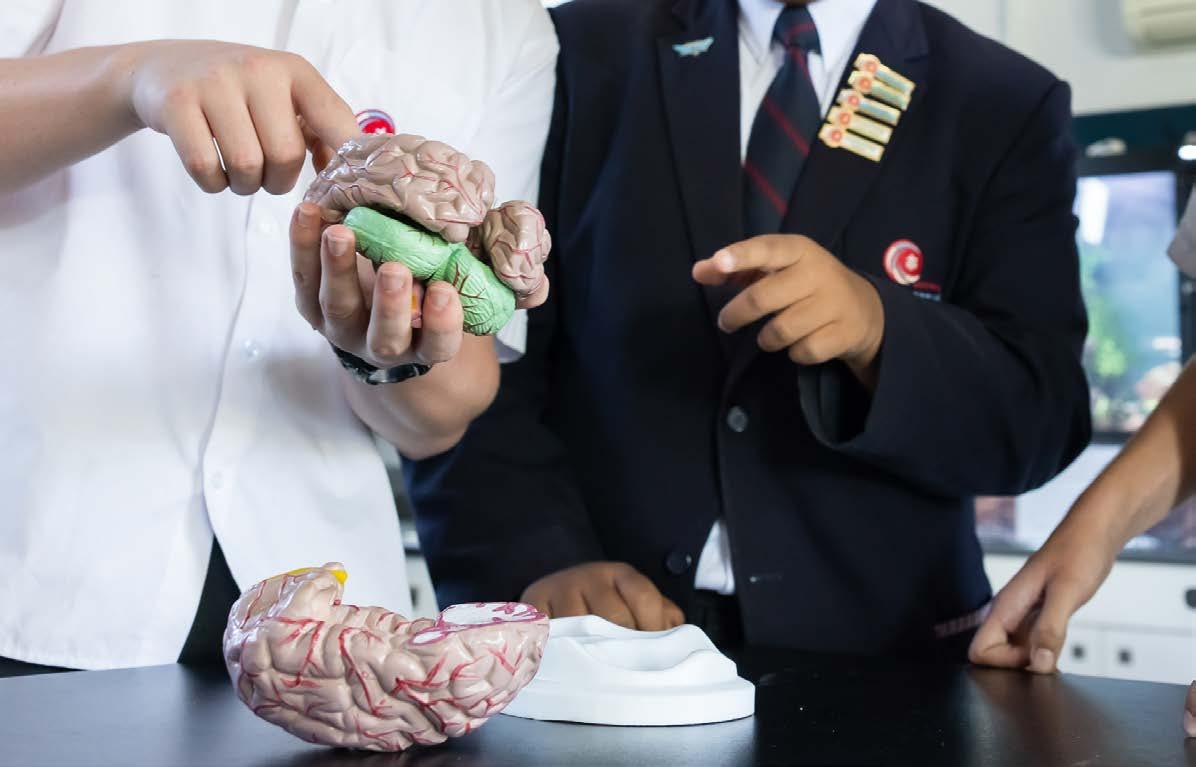
VCE Psychology explores human behaviour and mental processes. Students learn how biology, cognition, and environment shape thoughts, emotions, and actions. The subject develops research skills and applies psychological theory to real-world situations.
Eligible for acceleration
YEAR 11
Unit 1: How Are Behaviour and Mental Processes Shaped?
• St udy brain development, learning, and influences on identity
• Explore the roles of heredity and environment in shaping behaviour
• Analyse psychological research and ethical issues
Unit 2: What Influences Behaviour and Mental Processes?
• Investigate social influences, perception, and group dynamics
• Explore prejudice, conformity, and mental health challenges
• Design and conduct psychological investigations
YEAR 12
Unit 3: How Does Experience Affect Behaviour and Mental Processes?
• St udy the nervous system, learning, and memory
• Explore how stress impacts behaviour and health
• Apply models of learning and memory to real-life contexts
Unit 4: How Is Mental Wellbeing Supported and Maintained?
• Investigate the importance of sleep for mental health
• St udy anxiety, phobias, and biopsychosocial models of treatment
• Design and evaluate a psychological research investigation
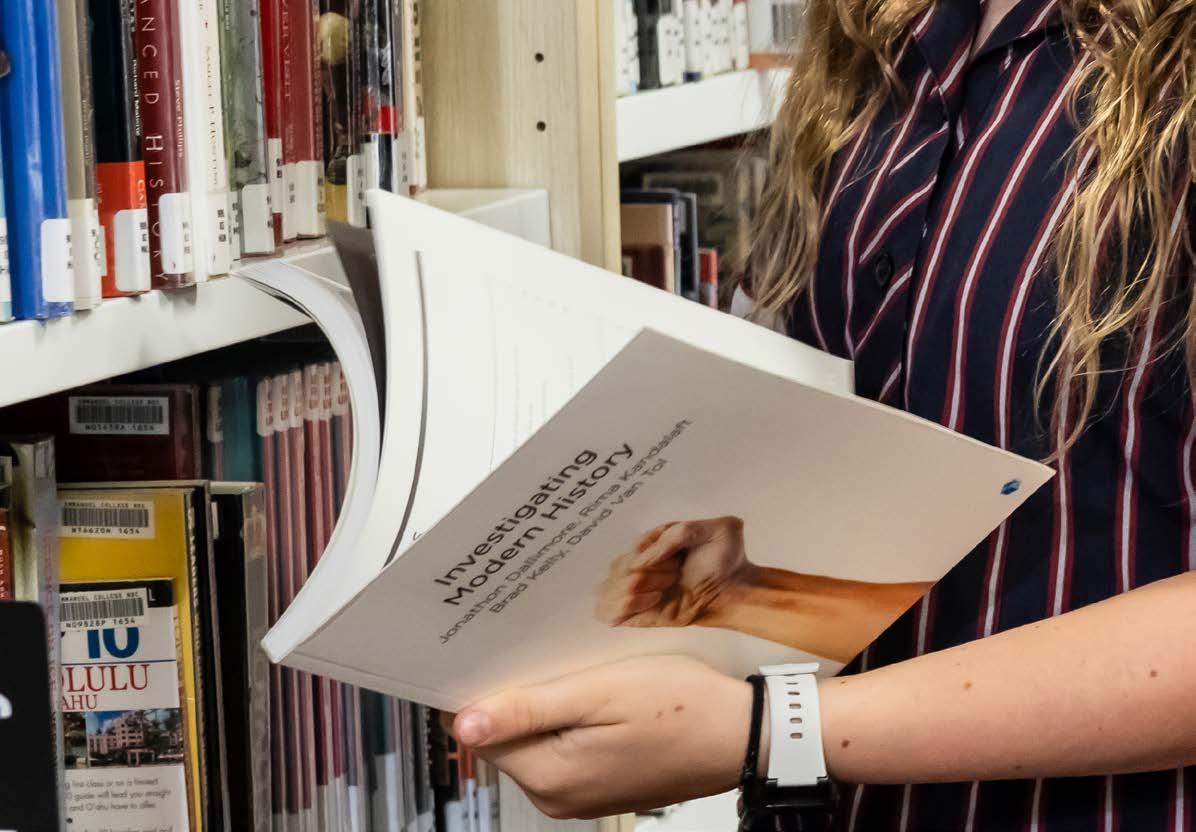
VCE History is the study of people, events and ideas that have shaped societies. Students investigate major changes in the past and how these changes continue to influence the present. They examine historical sources and interpretations to form their own evidence-based views about the past.
YEAR 11
Unit 1: Modern History – 20th Century
• Explore the aftermath of World War I and the lead-up to WWII
• St udy social and political movements in Europe, the US or Asia
• Analyse change and continuity in societies between the wars
Unit 2: Empires
• Investigate the rise and fall of empires across different periods
• St udy how empires expanded and their impact on societies
• Analyse power, resistance and the legacy of colonialism
YEAR 12
Unit 3: The American Revolution
• Examine events and conditions that lead to the Revolutionary War
• Study British management of the colonies and colonial responses
• Analyse the challenges faced by the new regime
Unit 4: The Chinese Revolution
• Explore key revolutionary figures and ideologies
• Analyse the fall of the Qing dynasty and rise of the Communist Party
• St udy the changes and consequences of revolution in China

VCE Legal Studies explores the Australian legal system, its principles, and how laws are made, enforced, and changed. Students investigate civil and criminal law, the protection of rights, and key institutions such as courts and parliament. Legal Studies builds analytical, reasoning, and evaluative skills through case studies and legal scenarios.
YEAR 11
Unit 1: Guilt and Liability
• Und erstand the principles of criminal and civil law
• Explore how laws are made and enforced
• Apply legal reasoning to real-world and hypothetical cases
• Unit 2: Sanctions, Remedies and Rights
• Investigate sentencing, civil remedies, and dispute resolution
• Explore the role of courts, tribunals, and alternative dispute mechanisms
• Analyse the relationship between parliament, the courts, and the people Eligible
• Examine how rig hts are protected in Australia and internationally
YEAR 12
Unit 3: Rights and Justice
• St udy the Victorian criminal and civil justice systems
• Evaluate the a bility of legal institutions to achieve justice
• Explore reforms to improve fairness and access
• Unit 4: The People and the Law
• Investigate the role of the Constitution and High Court
• Examine how laws are made and changed

VCE Geography investigates the characteristics of natural and human environments and how they change over time. Students explore environmental hazards, land use, tourism, population change and more. The subject includes significant fieldwork and data analysis.
Eligible for acceleration
YEAR 11
Unit 1: Hazards and Disasters
• St udy natural and human-made hazards such as bushfires, floods, pandemics
• Explore human responses to reduce risk and improve resilience
• Conduct fieldwork on hazard management
Unit 2: Tourism
• Investigate local and global tourism destinations
• Analyse the impact of tourism on places and cultures
• Evaluate the sus tainability of tourism practices
YEAR 12
Unit 3: Changing the Land
• St udy land cover change (e.g. deforestation, melting glaciers)
• Investigate a local case of land use change through fieldwork
• Examine causes, impacts, and responses at different scales
Unit 4: Human Population – Trends and Issues
Explore population dynamics, aging populations, and migration
• Analyse the effectiveness of strategies to manage population change
• Compare trends across countries and regions

VCE Global Politics examines power, conflict, cooperation and global issues. Students investigate the role of states, international organisations, and non-state actors in addressing problems such as climate change, human rights, terrorism, and war.
YEAR 11
Unit 1: Politics, Power and Political Actors
• Explore how governments operate and how political decisions are made
• Study political systems around the world
• Investigate a global political issue and the actors involved
Unit 2: Democracy – Stability and Change
• Study Australian democracy and threats to democratic principles
• Compare democracy in different countries
• Analyse populism, disinformation, and global movements for change
YEAR 12
Unit 3: Global Cooperation and Conflict
• Examine global issues (e.g. climate change, economic instability)
• Study humanitarian crises and international responses
• Analyse how cooperation and conflict affect global stability
Unit 4: Power in the Indo-Pacific
• Investigate power dynamics in the Indo-Pacific region
• Analyse the actions of global actors such as China, USA, Australia
• Explore Australia’s role in regional cooperation and diplomacy
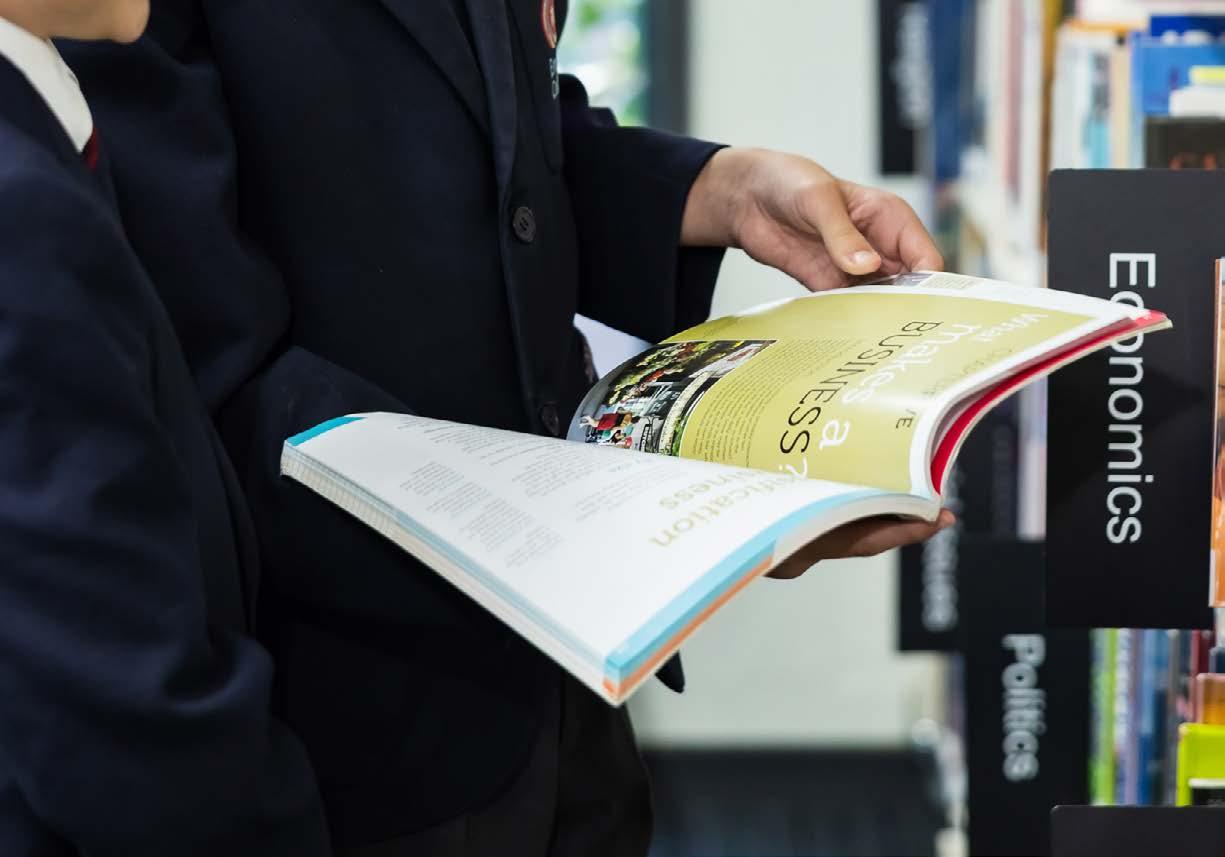
VCE Business Management explores how businesses are planned, started, and managed. Students learn how business decisions are made in areas like human resources, marketing, operations, and change management. They apply concepts to real-life business case studies and develop entrepreneurial thinking.
Eligible for acceleration
YEAR 11
Unit 1: Planning a Business
• Explore why people start businesses and what makes them succeed
• Learn about business structures, legal requirements, and the business environment
• Investigate market research, feasibility studies, and innovation
Unit 2: Establishing a Business
• Study staffing, financial management, and marketing strategies
• Learn how to manage business operations and policies
• Analyse business success factors and challenges
YEAR 12
Unit 3: Managing a Business
• Investigate operations, human resources, and workplace relations
• Study motivation, leadership, and corporate culture
• Learn how businesses achieve objectives through effective management
Unit 4: Transforming a Business
• Explore how businesses manage change
• Study tools such as Lewin’s Force Field Analysis and Porter’s Strategies
• Evaluate the role of leadership and corporate social responsibility in change

VCE Accounting focuses on how financial information is recorded, reported, and used to make decisions in a small business context. Students use both manual and digital systems to track business performance and recommend improvements.
YEAR 11
Unit 1: Role of Accounting in Business
• Und erstand accounting principles and how businesses operate
• Record transactions and prepare simple financial reports
• Analyse profitability and suggest strategies for success
Unit 2: Accounting for a Trading Business
• Track inventory, accounts receivable/payable, and noncurrent assets
• Use spreadsheets and accounting software
• Prepare budgets and evaluate business performance
YEAR 12
Unit 3: Financial Accounting for a Trading Business
• Use double-entry accounting and accrual reporting
• Prepare financial reports and assess cash and profit
• Analyse the impact of decisions on business outcomes
Unit 4: Recording, Reporting, Budgeting and Decision-Making
• Apply adjustments for depreciation and balance day items
• Prepare and interpret budgets and variance reports
• Make informed decisions using financial and nonfinancial data

VCE Economics studies how individuals, businesses, and governments make decisions about resources. Students explore economic issues like inflation, unemployment, and sustainability, and how policies affect living standards in Australia and globally.
YEAR 11
Unit 1: Behaviour of Consumers and Businesses
• Explore how people make choices and how markets work
• Analyse consumer behaviour, pricing, and competition
• Investigate the role of government in managing economic outcomes
Unit 2: Contemporary Economic Issues
• Study economic challenges such as environmental sustainability and inequality
• Explore how governments manage trade-offs in decision-making
• Use real-world examples to evaluate economic responses
YEAR 12
Unit 3: Australia’s Economic Prosperity
• Understand aggregate demand and supply
• Explore the role of markets in allocating resources
• Study the impact of global trade and policy decisions
Unit 4: Managing the Economy
• Evaluate the effectiveness of budgetary, monetary, and supply-side policies
• Analyse how governments influence economic growth, employment, and equity
• Apply economic models to real-world data and scenarios
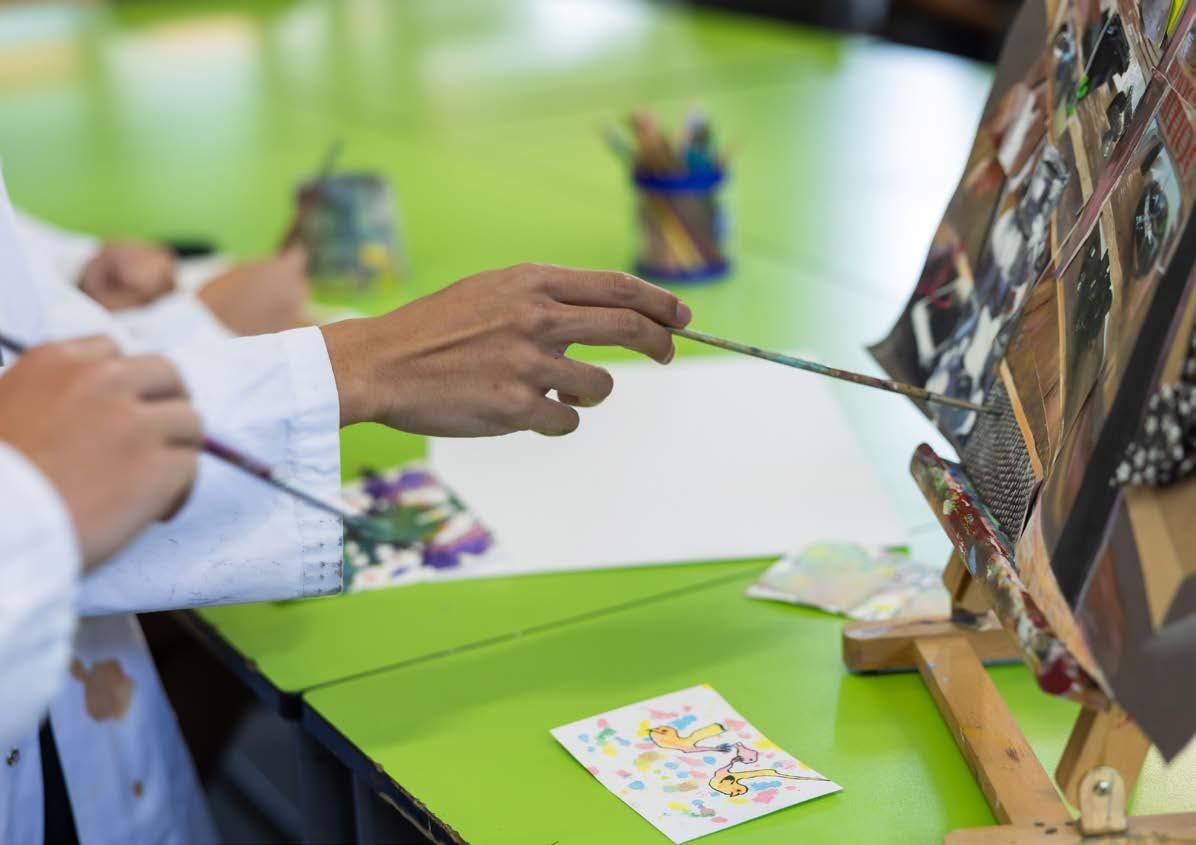
Art Making and Exhibiting explores how artists communicate ideas through their art, and how artworks are prepared and presented in exhibitions. Students create, refine, and display their own artworks while analysing the practices of artists from different cultures and times.
YEAR 11
Unit 1: Explore, expand and investigate
• Experiment with a range of materials, techniques and processes across different art forms.
• Investigate the properties and safe handling of materials and their evolution in historical and contemporary art practices.
• Document exploration and idea development in a Visual Arts journal through visual and written formats.
Unit 2: Understand, develop and resolve
• Develop personal ideas in response to a set theme.
• Plan and produce at least one finished artwork.
• Explore exhibition practices and analyse how artworks are selected and displayed.
YEAR 12
Unit 3: Collect, extend and connect
• Engage in sus tained art making using personal ideas, experimentation and research.
• Record the creative process in a Visual Arts journal.
• Participate in a peer critique and visit one exhibition space to study curatorial practices.
Unit 4: Consolidate, present and conserve
• Refine and resolve artworks from Unit 3, demonstrating technical skill and aesthetic development.
• Plan the presentation of, and reflect on, final artworks
• Investigate exhibition design, conservation and audience engagement.

VCE Theatre Studies focuses on interpreting scripts and bringing them to life through performance, design, direction and production. Students explore different theatre styles, acting techniques, and production roles such as set, lighting, costume, and sound design. The subject blends creativity, collaboration, and critical analysis.
This subject is ideal for students interested in performing arts, production design, directing, or theatre history.
YEAR 11
Unit 1: Pre-modern Theatre Styles and Conventions
• St udy theatrical movements such as Greek, Medieval or Shakespearean theatre
• Interpret scripts for performance or design
• Apply stagecraft skills (e.g. set, lighting, makeup, props)
• Reflect on performance processes and outcomes
Unit 2: Modern Theatre Styles and Conventions
• Explore theatre from the 19th century to contemporary works
• Work in a production team to prepare and present a scene
• Develop skills in acting, directing, or design
• Analyse live or recorded performances
YEAR 12
Unit 3: Producing Theatre
• Collaboratively interpret and apply stagecraft to a script
• Present a production to a live audience
• Evaluate creative decisions and technical execution
• St udy professional theatre examples
Unit 4: Presenting an Interpretation
• Ind ependently interpret and stage a monologue or scene
• Research context, character and production ideas
• Deliver a performance supported by documentation and evaluation
• Analyse how meaning is created in theatre

VCE Drama focuses on the creation and performance of devised works, emphasizing the exploration of dramatic elements, expressive skills, and performance styles. Students engage in both solo and ensemble performances, utilizing play-making techniques to develop original pieces that convey meaning to an audience. The study fosters creativity, collaboration, and critical thinking, making it
YEAR 11
Unit 1: Introducing Performance Styles and Conventions
• Explore a range of performance styles and their conventions.
• Devise and present a solo and/or ensemble performance.
• Use Play-making techniques to portray characters and situations.
• Reflect on the processes used in performance-making.
Unit 2: Contemporary Drama Practices and Australian Identity
• Investigate contemporary drama practices within the context of Australian identity.
• Create and present a performance based on aspects of Australian identity.
• Analyse and evaluate your own work and a professional Australian performance using drama terminology.
YEAR 12
Unit 3: Devised Ensemble Performance
• Collaboratively create and present an original ensemble performance.
• Apply expressive skills, dramatic elements and performance skills to communicate meaning.
• Document the creative process and evaluate the development and performance of your ensemble and a professional performance.
Unit 4: Devised Solo Performance
• Research, develop and present a solo performance based on a prescribed structure using non-realistic styles.
• Explore transformation of character, time, and place to convey meaning.
• Reflect on and evaluate the processes and performance of the solo work.
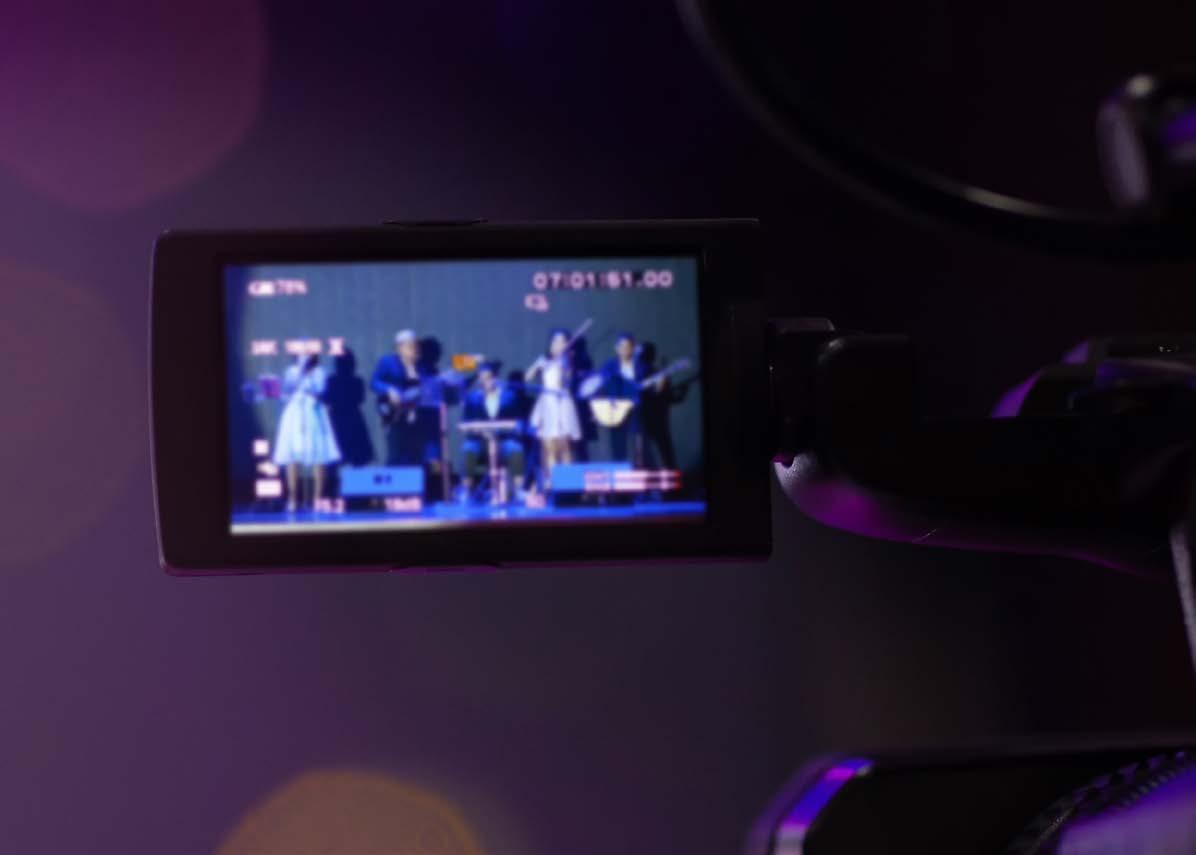
VCE Media examines how media is created and consumed in our digital world. Students explore film, TV, social media, video games and more. They create their own media productions and analyse how media texts shape meaning and influence audiences.
YEAR 11
Unit 1: Media Forms, Representations and Australian Stories
• St udy how people and ideas are represented in media
• Analyse Australian media narratives
• Begin planning and producing your own media text
Unit 2: Narratives in Production
• Create a media production using a chosen form (e.g. video, podcast, animation)
• Learn a bout codes and conventions
• St udy audiences, consumption habits and trends
YEAR 12
Unit 3: Media Narratives and Pre-production
• Analyse film and media texts through narrative structures
• Investigate media style and audience response
• Develop and document plans for a major production
Unit 4: Media Production; Agency and Control in and of the Media
• Produce, refine and evaluate your media product based on Unit 3 pre-production plans.
• Investigate the relationship between media and audiences, including emerging challenges in the media landscape.
• Analyse how media influences individuals and society
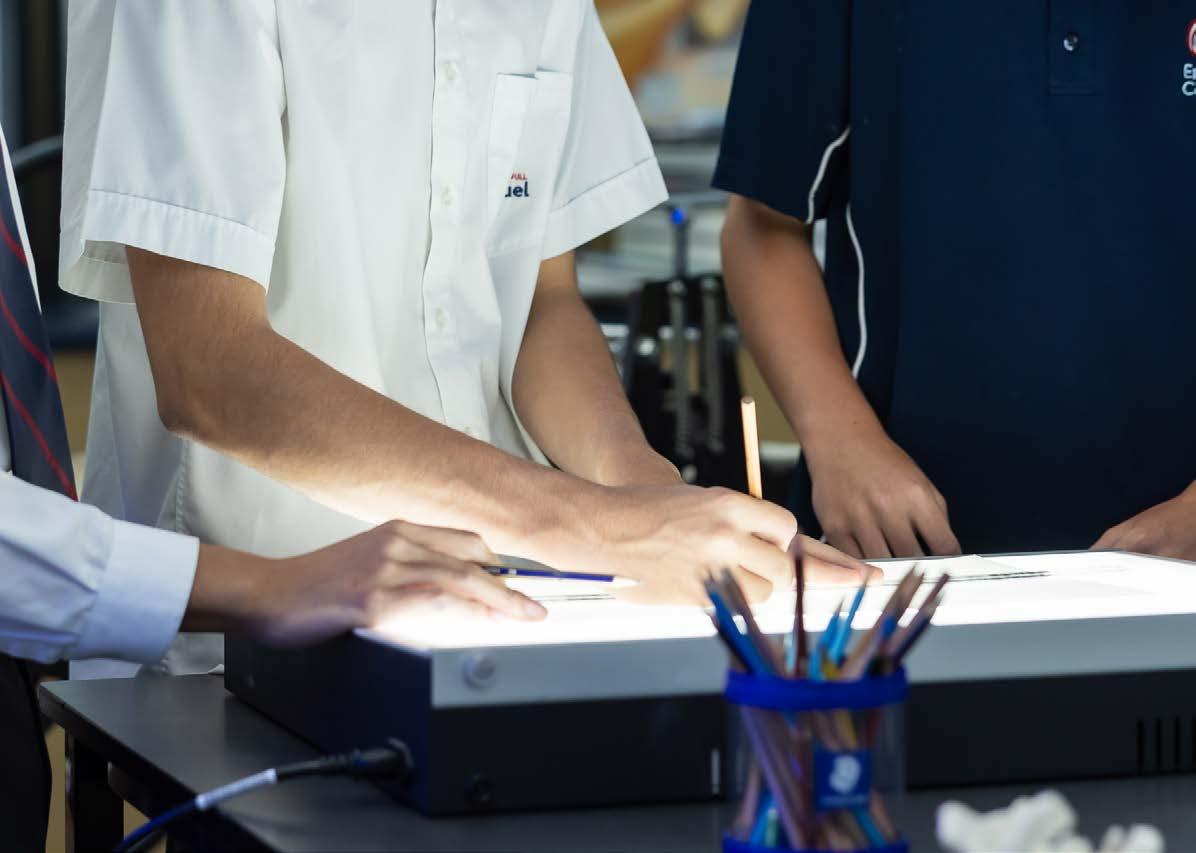
VCE Visual Communication Design focuses on how designers communicate messages through images, layout, and typography. Students create designs for real-world applications like advertising, packaging, and architecture using both manual and digital techniques.
YEAR 11
Unit 1: Introduction to Visual Communication
• Learn drawing methods and the design process
• Explore typography, layout and branding
• St udy how communication design meets specific needs
Unit 2: Applications of Visual Communication
• Create designs for product and environmental contexts
• Use indus try-standard digital tools (e.g. Adobe Illustrator)
• Analyse the work of professional designers
YEAR 12
Unit 3: Design Thinking and Practice
• Develop two major design briefs
• Explore visual language and communication strategies
• Research how design functions in society
Unit 4: Final Presentations and Evaluation
• Produce and present final design solutions
• Evaluate d esign decisions and respond to feedback
• Explore how visual communication engages audiences

VCE Applied Computing is about using digital tools and thinking skills to solve real problems in today’s tech-driven world. You’ll learn how to work with data, design software, explore emerging technologies, and understand how to keep information safe in our connected world.
Unit 1: Applied Computing
• Work with data in spreadsheets and databases.
• Use charts, graphs, and dashboards to turn numbers into visuals that tell a story.
• Learn to cod e using an object-oriented programming language (Python).
• Build a working software solution that responds to a set of design requirements.
• Und erstanding privacy and data ethics
Unit 2: Applied Computing
• Collaborate with others to design and build an innovative tech solution—this could be a prototype, proof of concept, or digital product.
• Explore cyber security threats and learn how to protect networks and personal information.
• Learn how software is planned and designed before any code is written.
• Choose a real-world problem to solve with software.
• Write a project brief and timeline and decide what your program will do (and how).
• Use diagrams, flowcharts, and planning tools to design the software.
• Und erstand important programming ideas like abstraction and object-oriented programming.
• Start your major software project, which you’ll build in Unit 4.
• Bring your design to life by writing the code to build your software solution.
• Use d ebugging and testing techniques to make sure your program runs smoothly.
• Keep track of your development process and explain how your program works through comments and documentation.
• Evaluate how well your software meets your original goals.
• Sugges t ways your program could be improved in the future.

VCE Food Studies explores the culture, history, production and preparation of food. Students develop cooking skills, investigate global food systems, and examine the role of food in health and society. Food studies is only available to students at the Notre Dame Campus.
YEAR 11
Unit 1: Food Origins
• St udy traditional cuisines and the development of agriculture
• Explore how migration and technology influence food
• Prepare and analyse foods from different cultures
Unit 2: Food Makers
• Learn how food is produced in Australia
• Explore small and large-scale food systems
• Apply cooking techniques and evaluate recipes
YEAR 12
Unit 3: Food in Daily Life
• Explore nutrition, diet-related diseases and food labels
• Investigate social and psychological roles of food
• Analyse factors affecting food choices
Unit 4: Food Issues, Challenges and Futures
• Examine sus tainability, ethics and food security
• St udy food marketing and labelling
• Propose actions for responsible food production and consumption
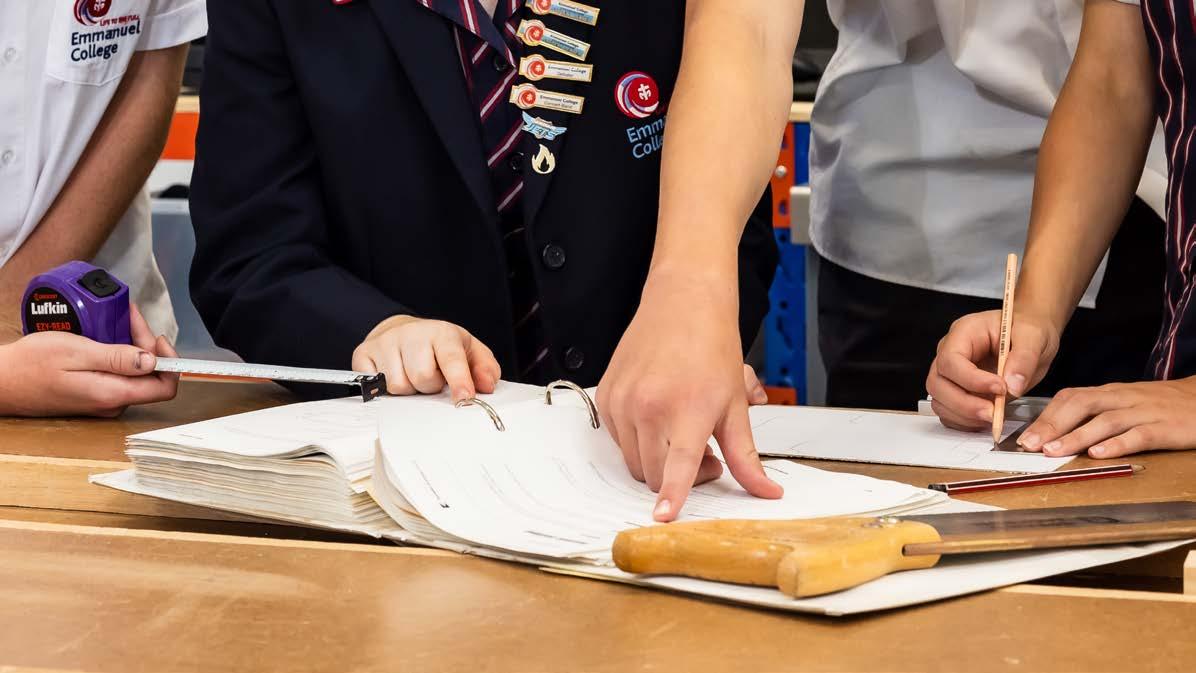
(Materials Stream)
VCE Product Design and Technology is all about creating useful and meaningful products using materials like wood, textiles, plastics, and mixed media. Students become creative problem-solvers – learning how to design, test, and make real products that are sustainable, ethical and suited to people’s needs. Along the way, they use hands-on tools and techniques, learn how industry professionals work, and think like real designers.
YEAR 11
Unit 1: Design Practices
• Discover how designers work together to solve realworld challenges.
• Explore different materials and learn how to turn your ideas into visual product concepts using sketches and drawing tools.
• Make simple prototypes and test how well your design works using safe and sustainable practices.
Unit 2: Designing for People
• Design and make a product that helps a specific group of people feel included and supported (for example, products that improve accessibility or usability).
• Work in a team to explore how your product can make a positive difference.
• Look at how cult ure and identity influence the way products are designed and used.
• Learn to reflect on how your design can make a social or cultural impact.
YEAR 12
Unit 3: Planning and Developing an Ethical Product
• Choose a problem or opportunity that matters to you and write a design brief.
• Research your idea and sketch out your concepts using both hand drawing and digital tools.
• Th ink about sustainability and ethical materials, and look at how professionals in the industry make design decisions.
• Plan your final product carefully and start testing ideas with feedback and research.
Unit 4: Making and Evaluating Your Product
• Build your final product safely, following your design plan.
• Test and reflect on how well your product works, and how well it meets user needs.
• Th ink about ways to improve your product in the future, using innovation, creativity and ideas that respond to changing needs or trends.
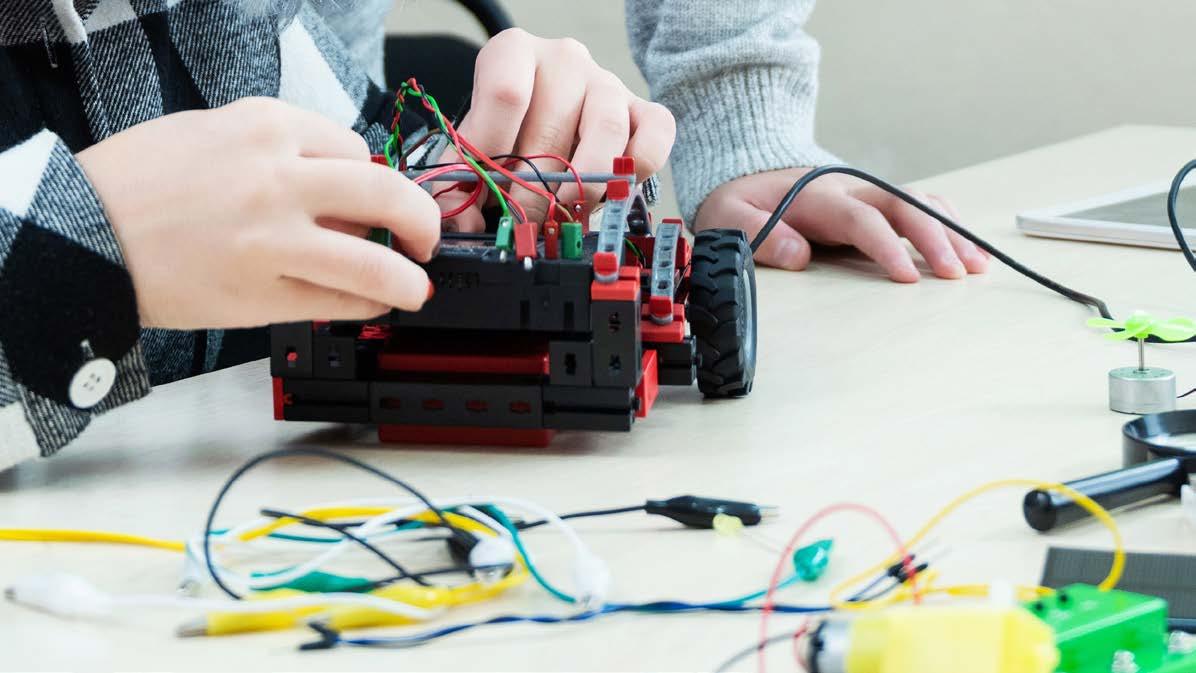
VCE Systems Engineering explores how mechanical and electrical systems work and how they are used in everyday products and technologies. Students design and build functioning systems using tools, materials, and coding.
YEAR 11
Units 1 and 2: Mechanical and Electrotechnology Fundamentals
• Learn a bout gears, levers, sensors and circuits
• Build functioning sys tems such as moving models or automated tools
• Use technical drawings and evaluate efficiency
YEAR 12
Unit 3: Integrated Systems and Energy
• Analyse energy sources, transmission, and storage
• Design and plan a system combining mechanical and electronic components
• Begin work on a major engineering project
Unit 4: Systems Control and Completion
• Complete and test your major project
• Analyse performance, safety and sustainability
• Document modifications and final evaluation
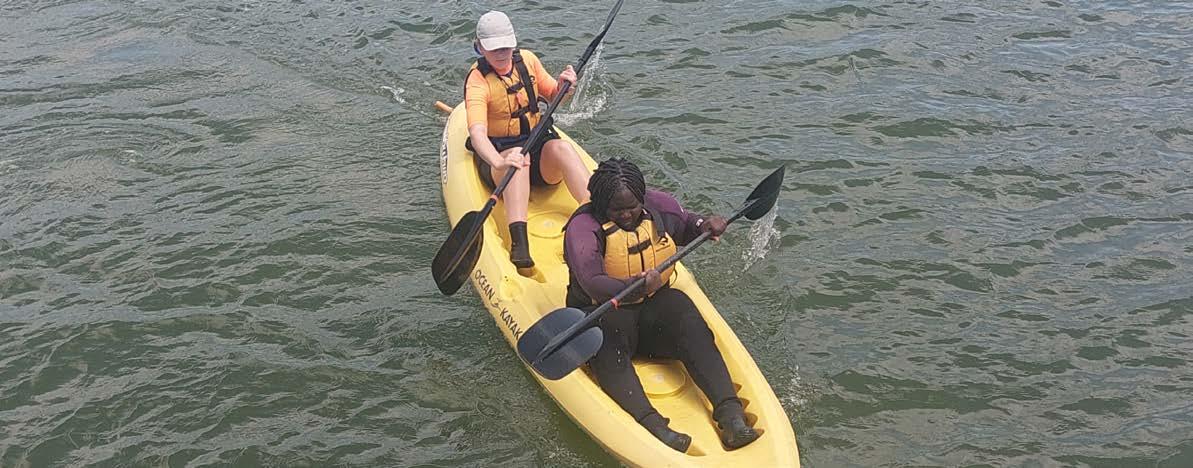
VCE Outdoor and Environmental Studies explores how people connect with, understand, and care for natural environments. Students will learn through hands-on experiences like bushwalking, canoeing, or camps, and discover how we can enjoy and protect nature at the same time. Students will examine the changing ways people (especially Indigenous Australians) have related to the land, how different user groups impact outdoor spaces, and how we can work towards a sustainable future for our environment.
Eligible for acceleration
YEAR 11
Unit 1: Connections with Outdoor Environments
• Explore different motivations for spending time in nature.
• Learn how peo ple—past and present—experience and value the outdoors.
• Gain skills for safe, low-impact outdoor participation.
Unit 2: Discovering Outdoor Environments
• Und erstand how natural environments function and change.
• Investigate the impact of human activities (like tourism or farming).
• Lead your own outdoor experience and evaluate its sus tainability.
YEAR 12
Unit 3: Relationships with Outdoor Environments
• Learn a bout Australia’s environmental history over 60,000+ years.
• Analyse how political, social, and cultural factors shape our use of the outdoors.
• Compare Indigenous and non-Indigenous relationships with Country.
Unit 4: Sustainable Outdoor Environments
• Assess the health of outdoor environments and how they’re managed.
• Investigate threats such as climate change and land degradation.
• Conduct a major investigation on sustainability in two different outdoor environments.
You’ll take part in real outdoor experiences that support your learning. These trips are a compulsory part of the program. Students wishing to undertake this study must account for time out of their school program for camp/trips.
This subject has a levy applied to your fees.
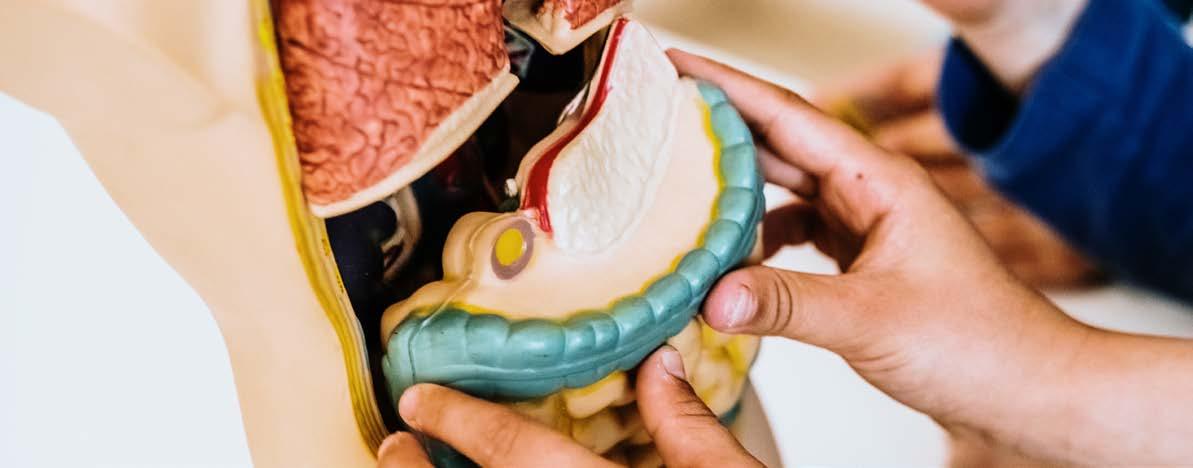
VCE Health and Human Development examines human growth from childhood to adulthood, focusing on individual wellbeing and public health strategies. Students explore global health challenges, development goals and health promotion.
YEAR 11
Unit 1: Understanding Health and Wellbeing
• Explore physical, social and mental health
• Inves tigate health behaviours and community influences
• Study nutrition and food mod els
Unit 2: Managing Health and Development
• Unders tand growth and development across the lifespan
• Learn about prenatal health, early childhood and adolescence
• Explore healthcare services and rig hts
YEAR 12
Unit 3: Australia’s Health in a Global Context
• Examine the health status of Aus tralians
• Explore the role of Medicare and private health insurance
• Study nutrition and disease prevention strategies
Unit 4: Health and Development in a Global Context
• Compare global health outcomes and human d evelopment
• Study the United Nations Sustaina ble Development Goals
• Evaluate Australian and global health initiatives
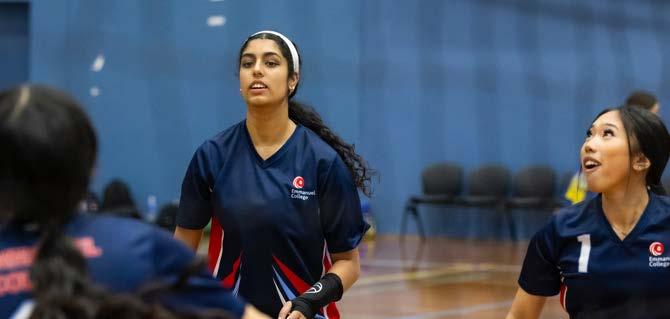
VCE PE explores how the body functions in movement and sport. Students investigate training principles, energy systems, biomechanics and factors influencing participation and performance.
YEAR 11
Unit 1: The Human Body in Motion
• St udy bones, muscles, and energy systems
• Learn a bout movement analysis and injury prevention
• Apply learning through physical activity
• Unit 2: Physical Activity and Sport
• Explore participation trends and barriers
• St udy fitness promotion and sport settings
• Plan and evaluate activity programs
YEAR 12
Unit 3: Movement and Performance
• Investigate energy systems, fatigue, and recovery
• St udy acute responses and training methods
• Design and evaluate a training program
Unit 4: Enhancing Performance
• Analyse biomechanics, skill acquisition and psychology in sport
• Evaluate legal and ethical issues in performance enhancement
• Apply scientific principles to training and competition
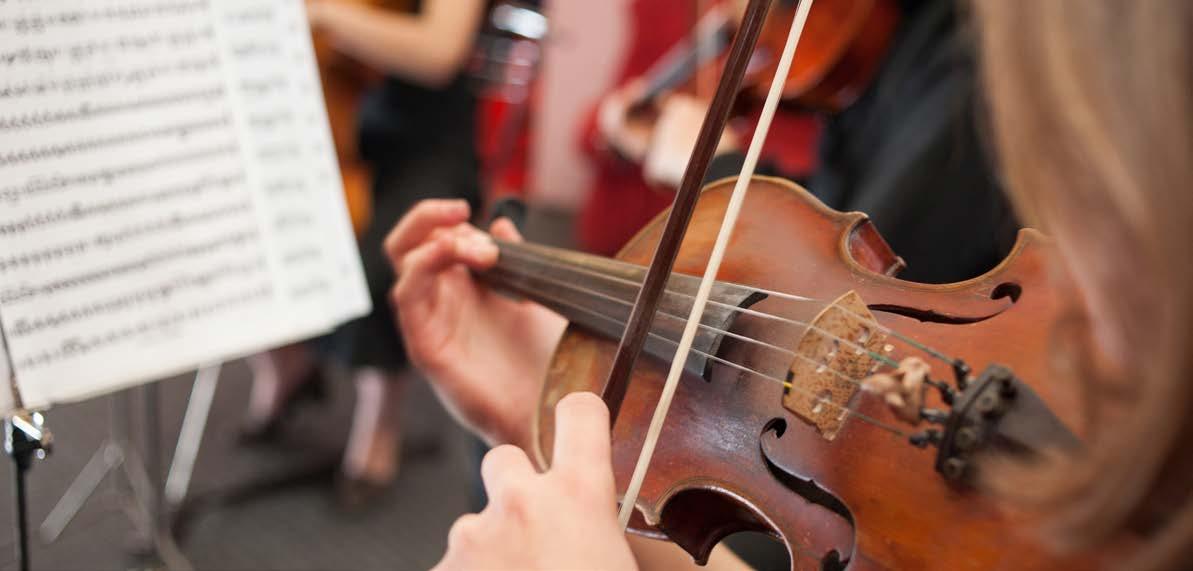
VCE Music is based on active engagement in all aspects of music. Students develop and refine musicianship skills and knowledge and develop a critical awareness of their relationship with music as listeners, performers, creators and music makers. Students explore, reflect on and respond to the music they listen to, create and perform.
YEAR 11
Unit 1: Music Performance and Interpretation
• Explore how music is organised and interpreted
• Develop performance skills as a soloist and/or ensemble member
• Begin to d evelop creative voice through short compositions, arrangements, or improvisations
• Analyse and respond to musical works
Unit 2: Music for Purpose and Effect
• Explore how music is used to create a specific effect or mood
• Prepare and perform solo and/or group works that reflect a clear expressive intention
• Create short musical works that use compositional techniques.
• Analyse music to understand how elements like dynamics, texture, tempo, and articulation shape listener experience
• Continue to develop skills in music theory, notation, and aural comprehension
YEAR 12
Unit 3: Music Performance Preparation and Interpretation
• Begin preparing a program of performance works
• Develop advanced instrumental or vocal techniques through regular practice and rehearsal
• Explore a range of musical styles and identify how different performers interpret music
• Enhance aural and music language skills to support performance interpretation
Unit 4: Music Performance Final Presentation and Evaluation
• Present polished performances that demonstrate expression, technique, and personal interpretation
• Perform at least one piece that is reimagined or adapted to show their creative approach
• Prepare a Statement of Intent to explain artistic choices and performance structure
• Explore how composers use sound elements to achieve emotional and artistic goals.
Practice, technical rehearsals and performance occasions will have a time impact on a student’s regular school program and out of school time.

CUA30920 Certificate III in Music (Performance)
VCE VET Music (Performance) provides students with the skills and knowledge to develop as contemporary musicians. Students work both independently and in groups to improve their instrumental or vocal performance, explore music styles, prepare for live gigs, and understand industry expectations across the duration of this 2-year course.
This course is ideal for students interested in careers in live performance, music teaching, sound production, or the broader music industry. For this VCE VET program, the College has partnered with COSAMP (RTO 41549).
Eligible for acceleration
PROGRAM HIGHLIGHTS
• Where a student meets the requirements of Units 1 and 2, a Statement of Attainment may be awarded. Where a student satisfactorily meets all requirements of the course in Units 3 and 4, a nationally recognised Certificate III in Music may be awarded.
• Build and refine instrumental or vocal technique
• Perform solo and as part of an ensemble
• Learn rehearsal planning, stagecraft, and performance etiquette
• Und erstand the music industry, health and safety for performers, and career pathways
• In Year One s tudents will complete two short work placements assisting with College music productions and performances.
YEAR 11
Unit 1 and 2 Overview (Year One)
The VCE VET Music (Performance) course assists students in developing a wide range of competencies in varied work contexts of the music industry, as well as in environments that require skills in music performance, music creation or composition, sound production or music business. Year 1 of the CUA30920 Certificate III in Music qualification is suited to students with a broad interest in music who are keen to develop further skills in performance, lyric composition and songwriting, and develop industry knowledge.
YEAR 12
Unit 3 and 4 Overview (Year Two)
Year Two builds on a student’s competency in varied work contexts of the music industry, and associated environments that require skills in music performance, music creation or composition, sound production or music business. Year 2 of the Certificate III in Music (Performance) is suited to students who are keen to develop further skills in improvisation, stagecraft and performance practices.
Recommended Prior Learning
Units 1 and 2 VET Music
Expertise within a musical instrument, including current private tuition
An audition is a requirement of entry
Practice, technical rehearsals and performance occasions along with compulsory work placement will have a time impact on a student’s regular school program and out of school time.

VCE Italian helps students build strong skills in speaking, listening, reading, and writing while exploring Italian culture, identity, and daily life. Through real-world topics and engaging activities, students learn how to communicate in meaningful ways, both in personal and broader global contexts. The study encourages reflection on the connection between language and culture, helping students develop intercultural understanding and practical language skills useful for travel, work, and further study.
This subject is ideal for students who enjoy languages and want to connect with Italian-speaking communities in Australia and around the world.
YEAR 11
Unit 1 – My Italian Identity
• Talk a bout yourself, your family, and your interests
• Learn how to introduce yourself, express likes/dislikes, and describe daily routines
• Read and write simple texts like messages, emails, and blog posts
• Build your confidence with pronunciation, grammar, and basic vocabulary
Unit 2 – Italian Life and Culture
• Explore everyday Italian life, including school, leisure, and food
• Compare Italian and Australian lifestyles
• Und erstand and create texts like menus, schedules, and diary entries
• Build vocabulary for social interactions and public spaces
YEAR 12
Unit 3 – Italian Connections
• Express opinions and experiences about travel, education, and future goals
• Explore Italy’s role in the global world and how language reflects culture
• Read and respond to more complex texts like interviews or short articles
• Develop spoken and written skills for real-life communication
Unit 4 – The Italian-Speaking World
• Discuss broader topics like environment, youth issues, or technology
• Present arguments and opinions in both spoken and written form
• Explore how language and culture influence identity and worldviews
• Prepare for final assessments with confidence in all skills: reading, writing, listening, and speaking
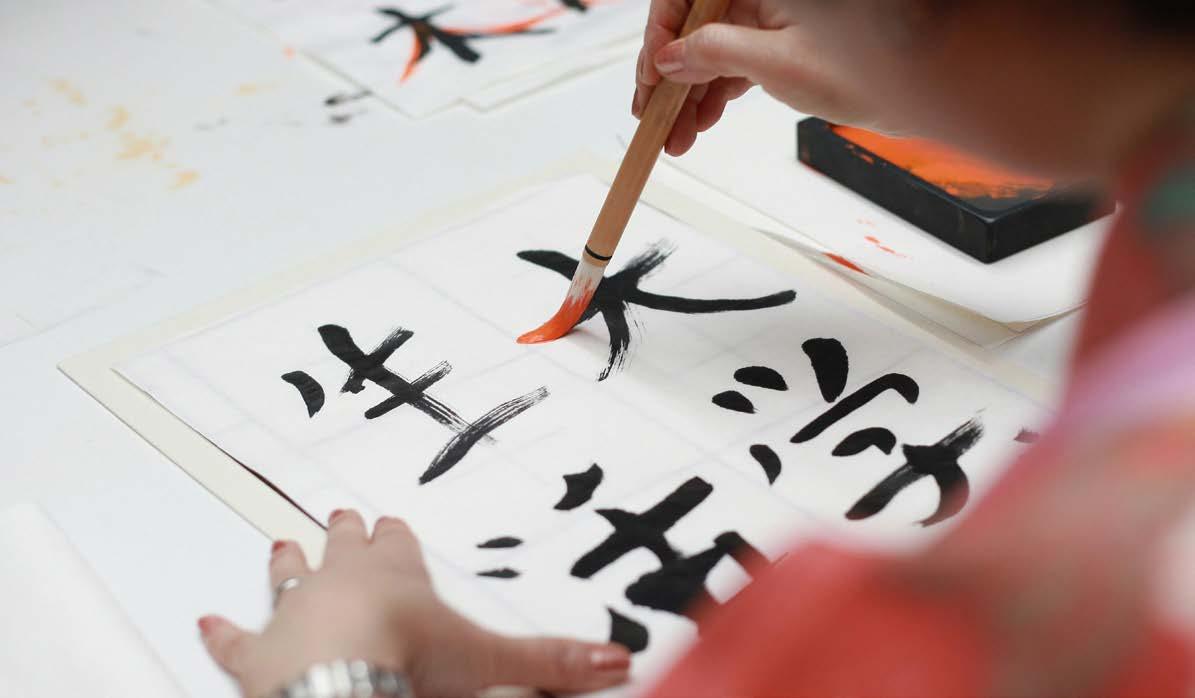
VCE Japanese helps students build the skills to communicate with confidence in Japanese and to understand Japanese culture, people, and society. Through speaking, listening, reading, and writing, students learn to use Japanese in real-life situations while also exploring topics like travel, work, daily life, traditions, and technology. The course supports both personal and academic growth and can lead to exciting global opportunities.
This subject is ideal for students who enjoy languages, culture, or travel, and want to challenge themselves with new ways of thinking and communicating.
YEAR 11
Unit 1 – Personal World
• Talk a bout yourself, your family, and your interests
• Learn everyday phrases for introductions and conversations
• Read and write simple texts (e.g. profiles, messages, blog posts)
• Build confid ence using hiragana, katakana, and basic kanji
Unit 2 – Exploring Daily Life
• Talk a bout school, routines, and daily activities
• Order food, talk about hobbies, and describe places
• Expand reading and writing skills with short texts and emails
• Compare Japanese and Australian school or home life
YEAR 12
Unit 3 – Connections with the World
• Express opinions, experiences, and future plans (e.g. travel, jobs)
• Und erstand longer conversations, articles, and stories
• Write informative and persuasive texts
• Learn how Japanese language and cult ure influence each other
Unit 4 – Moving Forward
• Prepare for post-school life using Japanese (e.g. travel, study, work)
• Discuss global to pics like environment, youth, or technology
• Create detailed spoken and written texts for different audiences
• Polish grammar, kanji, and communication skills for final exams

VCE Spanish enables students to authentically participate in our wider world by mastering their speaking and listening in a language that is strongly represented in over twenty countries. Students can uncover new ways of thinking about the world and broaden their horizons socially, economically and vocationally by studying Spanish at a more senior level. Throughout the course, students are encouraged to reflect on their personal experiences and identify similarities and differences between them and those experienced by young people immersed in Spanish culture. By engaging in modern standard Spanish, students also have the opportunity to explore a broad range of ideas and themes, challenging their understanding of the connection between language and culture.
In addition to building their communication skills and intercultural understanding, through the study of Spanish, students can bolster their critical thinking by forming arguments and responding to different perspectives in another language. By engaging in this truly global language, students can consider international careers in diplomacy, tourism, business, international law and education.
YEAR 11 - NDC ONLY
Unit 1 – Exploring Daily Life
• Discuss and share information in Spanish through conversations, interviews and role-playing.
• Grow in confidence with your interpretation of visual, spoken and written texts connected to the Spanish culture.
• Apply your growing knowledge of Spanish culture to new scenarios.
• Explore the connection between the Spanish culture and way of life.
• Build your understanding of key vocabulary and grammar on a range of topics.
•
Unit 2 –
• Understand how cultural beliefs and practices help shape a community.
• Develop your competence in understanding and responding to Spanish in a variety of modes, such as letters, text messages, calls and emails.
• Understand social norms and expectations of individuals within the Spanish culture.
• Create a presentation in Spanish that demonstrates your knowledge of an aspect of the culture.
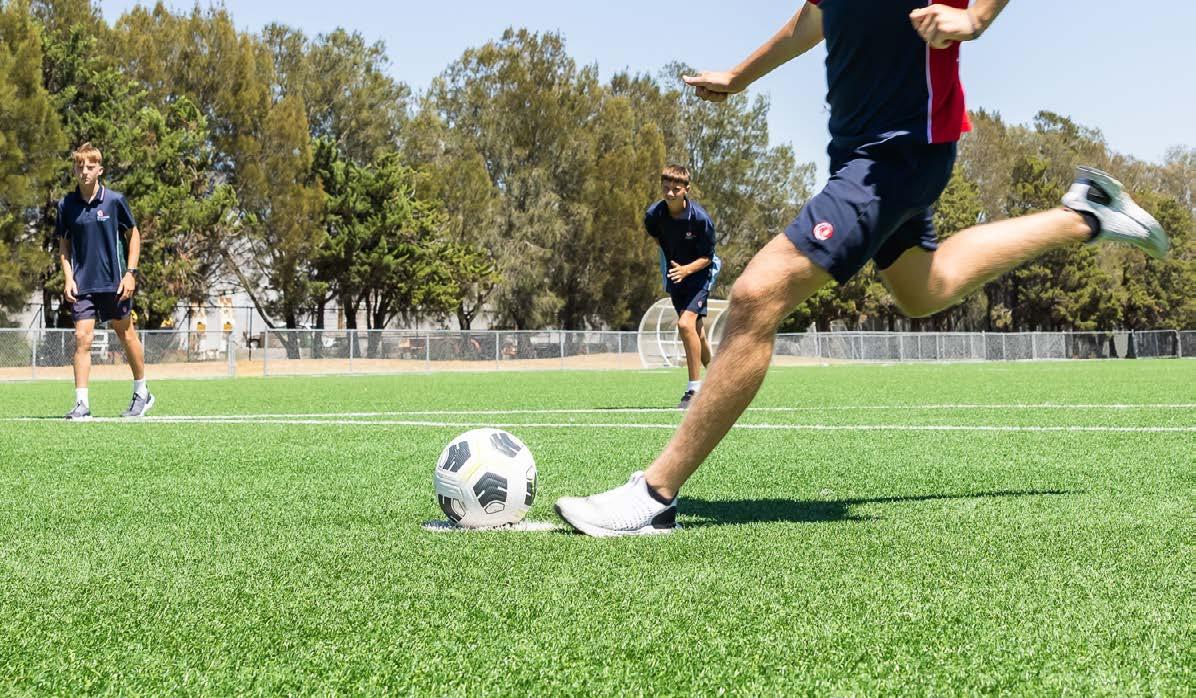
Certificate III in Sport and Recreation (partial or full completion)
VCE VET Sport, Aquatics and Recreation gives students hands-on experience in the sports, aquatics, and recreation industries. Students develop practical skills in activity planning, fitness instruction, first aid, and working with diverse groups. The course includes both theoretical and physical components.
This course suits students interested in careers in sport coaching, fitness, outdoor education, community recreation or health services.
Eligible for acceleration
PROGRAM HIGHLIGHTS
• Conduct warm-ups, drills and recreation sessions
• Learn how to plan and deliver sport and leisure programs
• Understand safety procedures and risk management
• Develop leadersh ip, communication and customer service skills
• Gain nationally recognised units from Certificate III in Sport and Recreation
ASSESSMENT AND STRUCTURE
• Combination of practical tasks, workbooks, and structured workplace learning (SWL)
• Delivered over one or two years through a Registered Training Organisation (RTO)
• Some units may contribute to a scored VCE study (ATAR), depending on provider and delivery mode
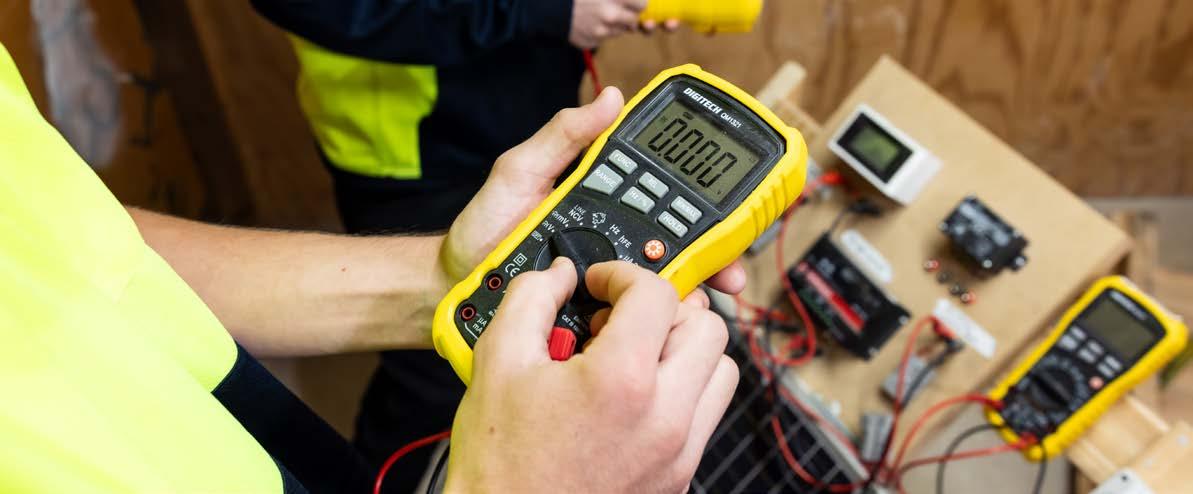
Vocational Education and Training [VET] subjects provide hands-on, industry-recognised qualifications in areas like trades, hospitality, health, music, and business. VET programs contribute to the VCE or VCE VM and can offer scored or unscored outcomes.
School-Based Apprenticeships and Traineeships [SBAT] combine part-time employment, training, and school — students gain a head start in their chosen industry.
• VET programs often include Structured Workplace Learning (SWLR)
• Most VET programs contribute to VCE VM requirements and some to ATAR
• Attendance, behaviour, and commitment to external training providers is expected
• SBAT st udents must meet work and study hours for successful completion and are only available through an application process.
• Please consult with your VCE and Vocational Pathways Coordinator and Careers Practitioner to explore available offerings and how they align with your career goals.
Participation in an SBAT will have a personal time commitment both after hours and during the school day to accommodate work placement.
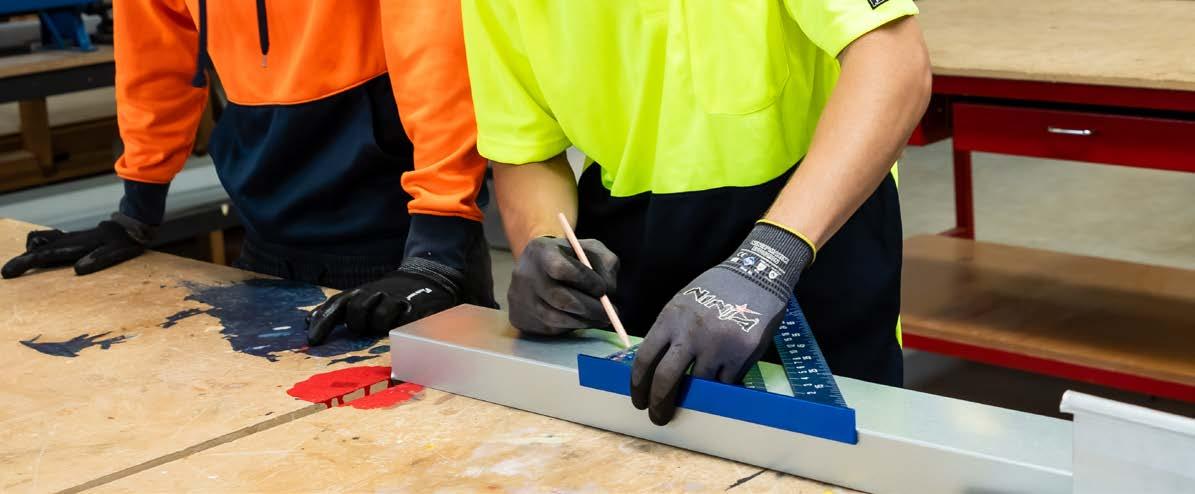
Flexible, applied learning to prepare students for further education, training, or employment
The Victorian Pathways Certificate (VPC) is a hands-on learning program for students who need a flexible and supportive pathway through their senior years. It focuses on building core skills in literacy, numeracy, personal development, and work-related learning to help students confidently transition into TAFE, an apprenticeship, further education, or employment.
The VPC is not an ATAR pathway but provides a meaningful and recognised senior secondary qualification for students who may not be ready or suited to the VCE or VCE Vocational Major (VM).
The VPC allows students to build confidence, independence, and workplace readiness in a supportive environment. It recognises each student’s progress and strengths and sets them up for success beyond school.
WHO IS THE VPC FOR?
VPC may be suitable for a student who:
• has had a highly modified program during their F-10 years
• is re-engaging into the school environment
• has had a transient experience with previous school enrol ments
• meets the eligibility for the Nationally Consis tent Collection of Data (NCCD)
• receives support from the to p three levels of the NCCD: extensive, substantial and supplementary.
• has additional or complex social and wellbeing needs that cannot be supported in the VCE or VCE VM through Special Provision supports.
• Would benefit from additional support with literacy, numeracy, and personal development
• Are not ready to begin the VCE or VCE VM but want a positive senior secondary experience
• May be planning a gradual transition into work, a traineesh ip, or further education
Students must be aged 15 or older and typically complete the VPC over 12 to 18 months.
Student’s complete 12 units from four core curriculum areas:
• Literacy – reading, writing, communication for real-life situations
• Numeracy – practical maths skills for life and work
• Personal Develo pment Skills (PDS) – teamwork, confidence, resilience, and community participation
• Work-Related Skills (WRS) – preparing for the workplace, OH&S, and exploring career options
• Many stud ents also take part in VET (Vocational Education and Training) and Structured Workplace Learning as part of their program.
There are no exams or study scores in the VPC. Students are assessed through hands-on projects, practical tasks and participation. Progress is based on completion of learning outcomes rather than traditional grades.
If you are considering if VPC is right for you, speak to a Careers practitioner, Inclusion Lead Teacher or VCE Coordinator.



ST PAUL’S CAMPUS
423 Blackshaws Road, Altona North VIC 3025 (03)8325 5100 principal@ecmelb.catholic.edu.au
NOTRE DAME CAMPUS
2–40 Foxwood Drive, Point Cook VIC 3030
P.O. Box 5, Altona North VIC 3025 (03)8325 5100 principal@ecmelb.catholic.edu.au